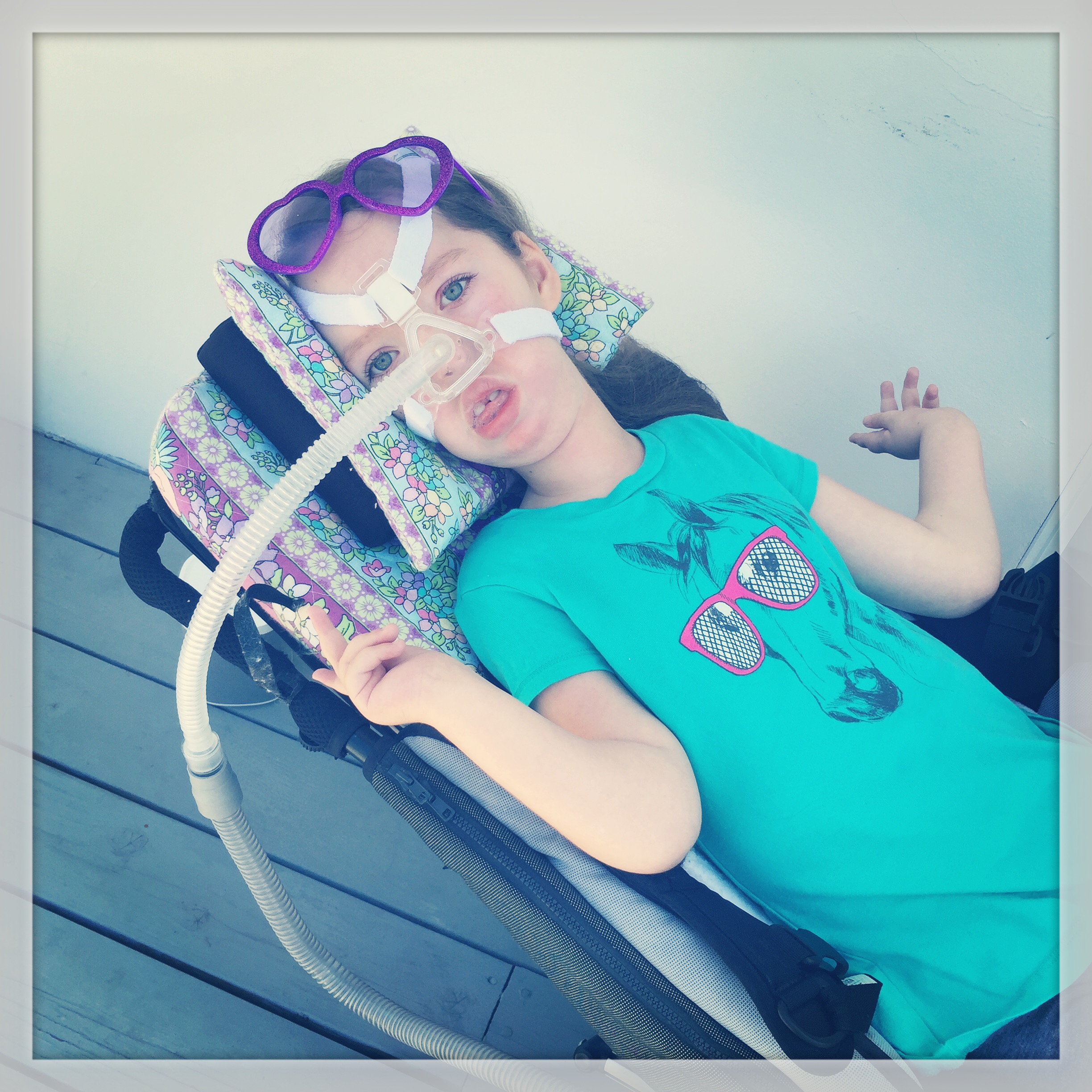
Today is Gwendolyn’s last day of second grade! We now officially have a third grader!!! We feel immensely grateful for all that school is to Gwendolyn — for this fabulous second grade year and for her previous years, too. I’ve started writing this a dozen times. The reality is I will never be able to adequately articulate all that is Gwendolyn’s experience at school. School is probably the most important part of her life. From her support team, to her friendships, to her access to education… it is truly magic.
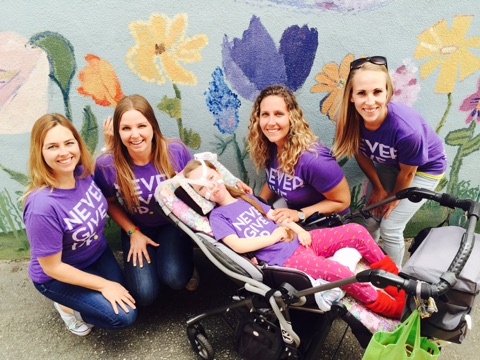
Gwendolyn attends a typical elementary school and is fully integrated into the mainstream classroom. But, because of the severity of Gwendolyn’s SMA, specifically because she is non-verbal, there is a lot of support that goes into making her “typical” experience possible. Along with her regular ed classroom teacher, Gwendolyn needs a speech therapist (Miss Emily), an inclusion specialist (Miss Weirum), and two RNs (Tina and Abbie) who also take on the role as her body mover, interpreter, assignment adapter, and more. They work directly with the classroom teacher every day and modify all assignment to make them possible and/or meaningful for Gwendolyn. Miss Weirum also helps with this for bigger projects. This means there is little added burden to the regular ed teacher and she can focus on educating and interacting with Gwendolyn in the same way she teaches all students. Gwendolyn also has “pull out” and “push in” speech sessions a few times a week, as well as pull out and push in time with her inclusion specialist every day. As long as she is up to it, however, most of the day is spent at her desk working diligently, just like her peers. Or in the garden, with her peers. Or on the blacktop playing PE, with her peers. Or drumming the drums in music, with her peers. Or in the library, with her peers… Inclusion is completely possible and she is living it every single day she’s at Washington.
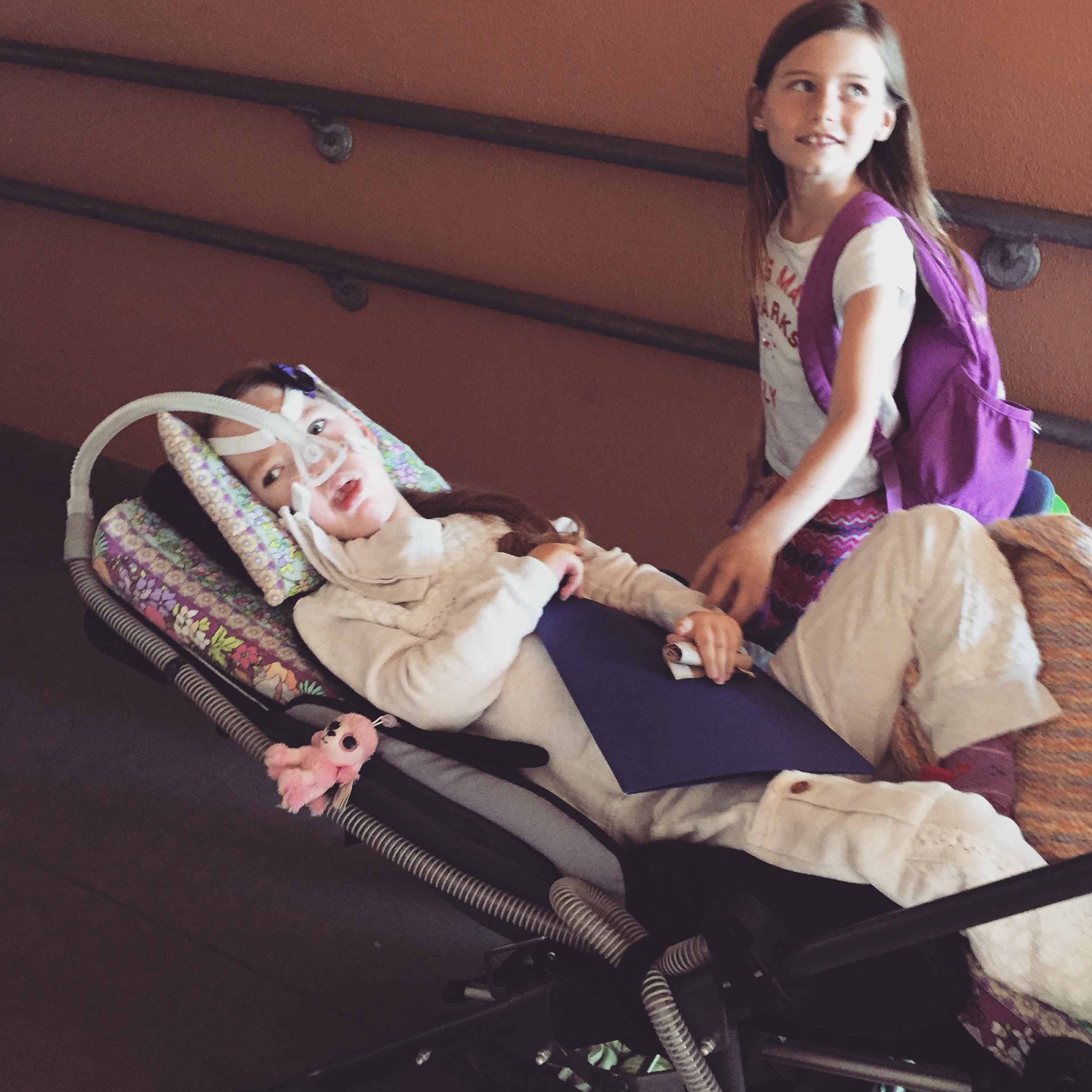
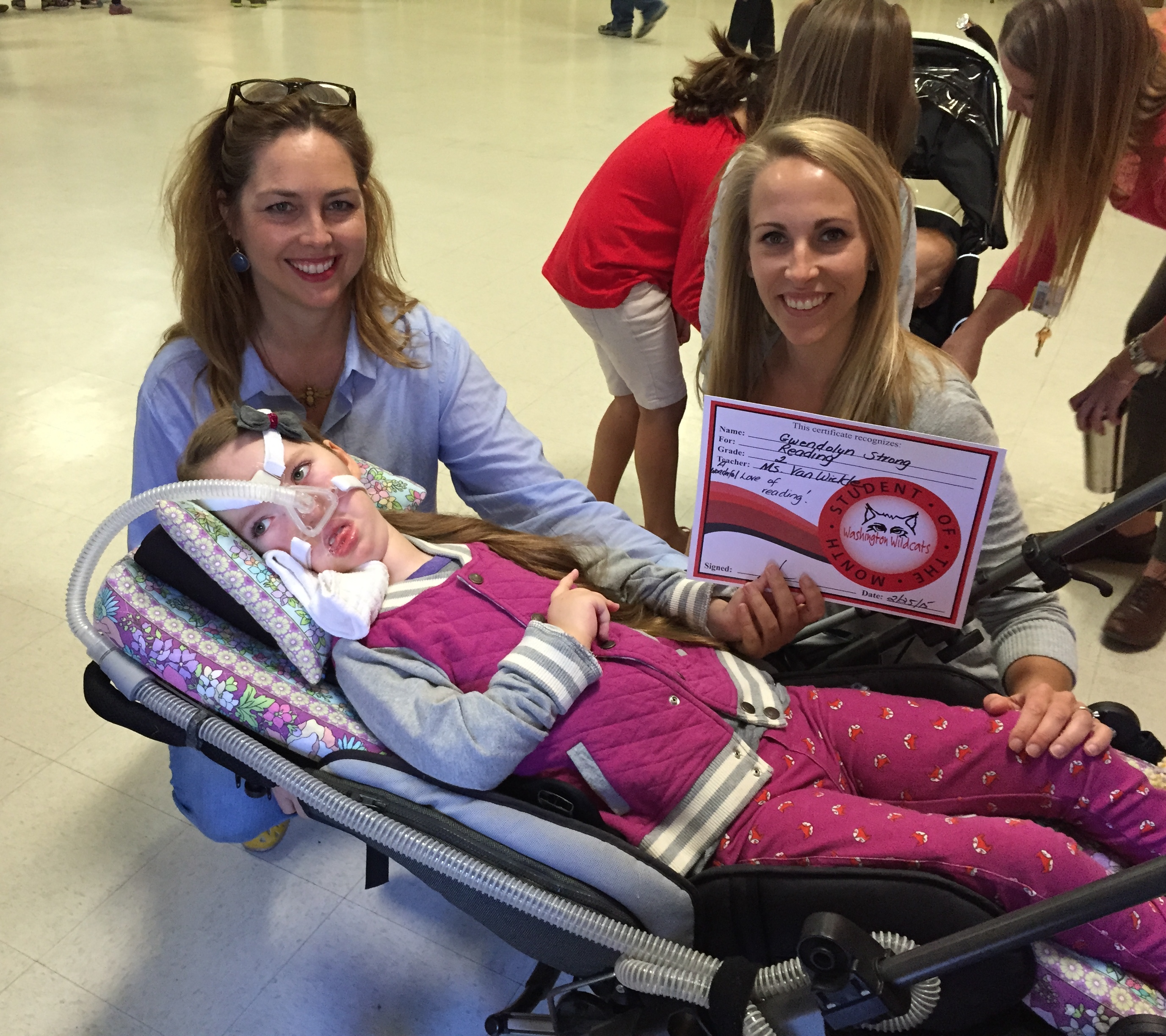
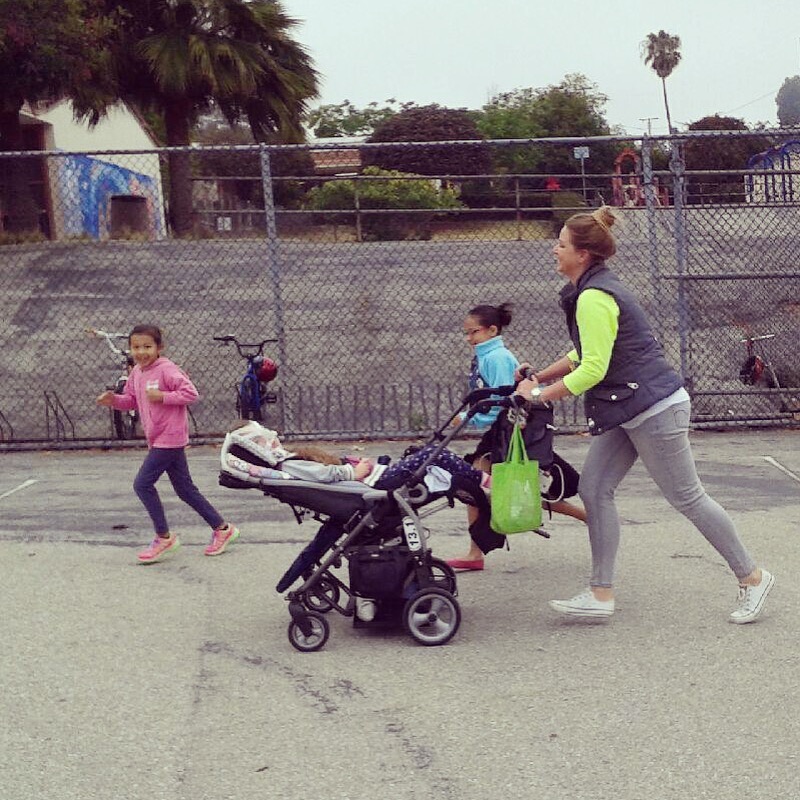
Her team is imperative for making inclusion possible. They all possess what Bill and I call the “it factor” — a sensitivity and intuition that allows them to truly “get” Gwendolyn. They love her and respect her and Gwendolyn knows it. Gwendolyn, in turn, adores them. She has a different and special relationship with each person on her team. She loves to tease Miss Weirum, often playing jokes on her. She also has enormous trust in Miss Weirum and will have very serious talks with her, expressing some of the really big complex emotions she must work through because of SMA. Gwendolyn tells Miss Emily to get down to business, though it is so obvious she loves all the silliness and fun Miss Emily brings to speech sessions. She goes into major imaginative world with Tina and Tina is also such a nurturer that Gwendolyn often needs cuddles from her. And she is very giggly with Abbie and loves story telling with her. They also love to dance together and talk about boys! All of them work so hard in making sure Gwendolyn can flourish. And flourish she does.

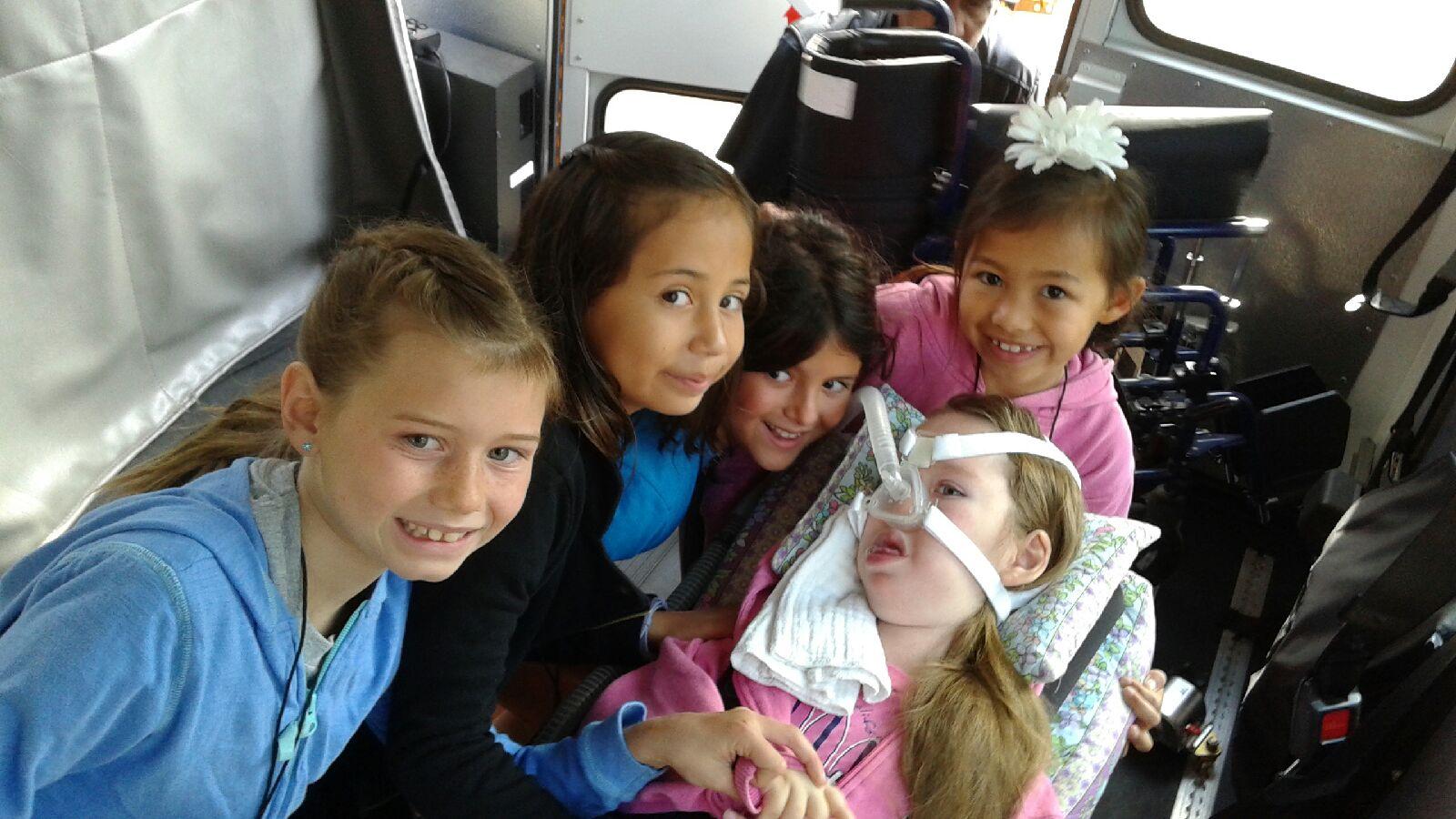
.jpg)
So how does this all work? Obviously Gwendolyn’s physical limitations are challenging. She needs help to hold a pencil. She needs help to write. She needs help to turn the pages of her books. She needs help to turn her head to look at what the teacher is discussing. But it is her speech limitations that create the biggest hurdles. Keep in mind, cognitively Gwendolyn is unaffected. In fact, she is very, very intelligent. Perhaps because she is not focusing on movement, Gwendolyn is a voracious reader, with a keen memory, and is far above her grade level in literacy and (ironically) language. (Parts of speech activities — nails them!) Gwendolyn’s remarkable team works so hard (and yet so naturally) at getting all of her whimsical, silly, and typical second grade thoughts out of her. And she is so empowered by the tools they have created.
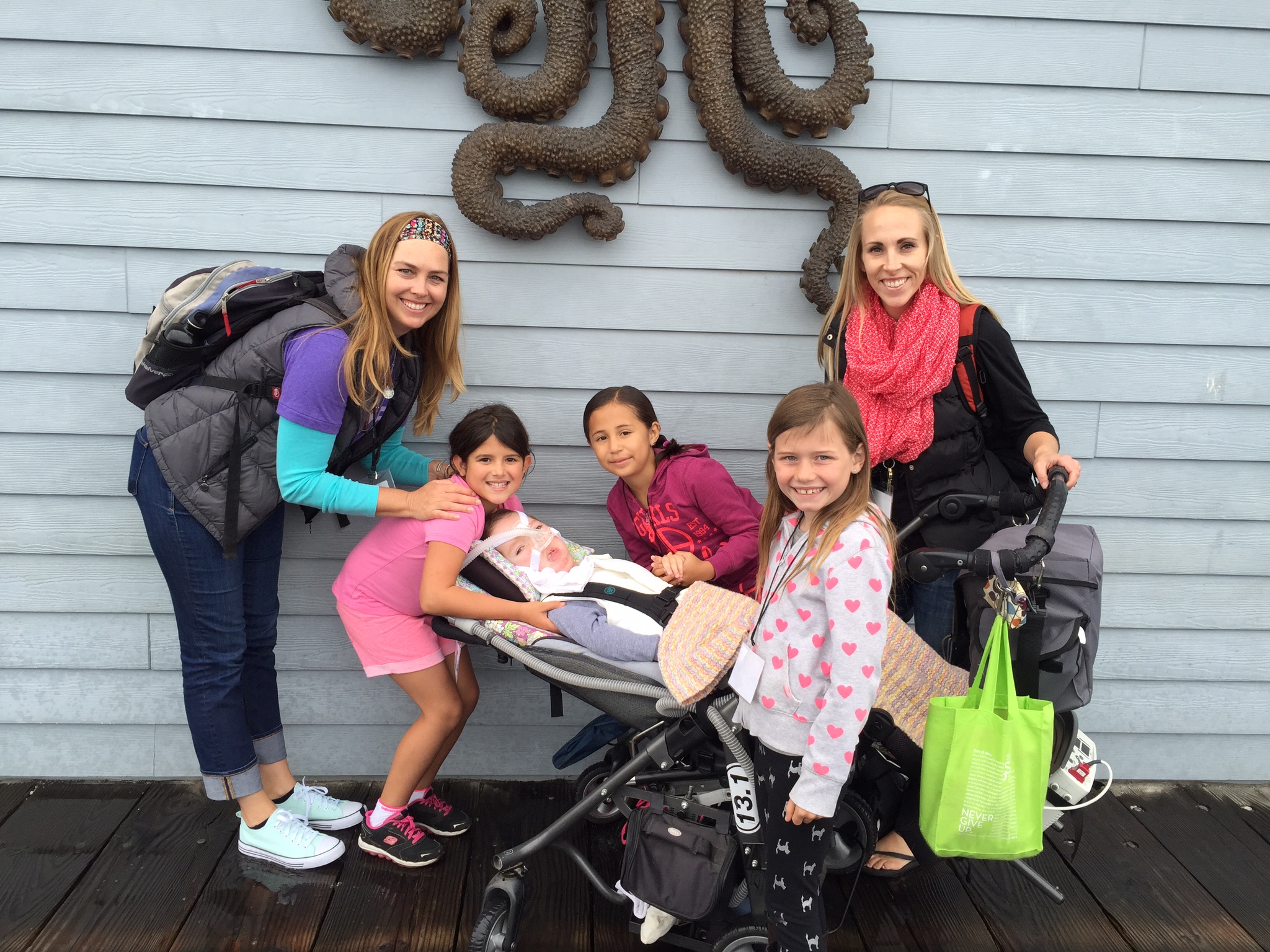
When we first entered kindergarten we had high hopes about the use of an eye gaze machine: a computer that she can control with the movement of her eyes. While we still believe this is an avenue, it continually proved frustrating for her, was slow and clumsy, ultimately stifled the breadth and depth of her access to education, and most certainly limited her social interaction with peers. Her team instead came up with simple and fun ways to accomplish the same goal: communicate independent thought.
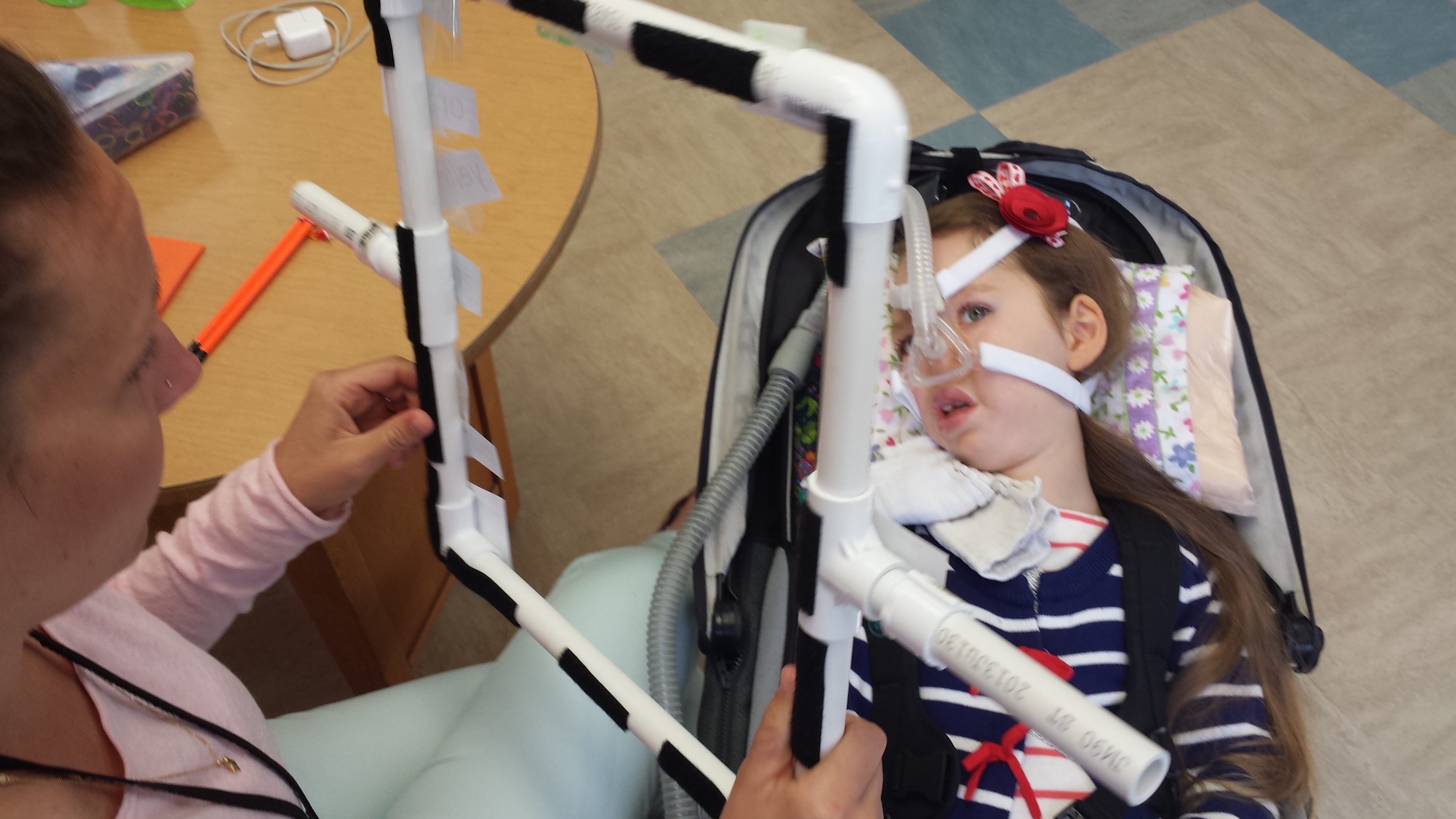
One of the tools the team created is a simple PVC pipe frame. They started by putting cards in each corner to allow her to select the correct answers to questions they posed — like a visual multiple choice. She scans the cards and then selects with her eyes and a “Guh!” sound. She is so fast with the system now that they can cover the entire frame with cards and when she isn’t satisfied with the options on the side she shouts “Flip it!” and they flip to an entirely new collection on the other side. This can be used to build sentences, to play games, to show cognition, to interact with friends. Using this PVC frame system (while keeping it fun and varied) has been an enormous motivator for Gwendolyn. Her speech therapist, Miss Emily, and her inclusion specialist, Miss Weirum, work so fluidly together on strategies and started the PVC frame last year in first grade, which was the first year they both came to Washington. I will never forget the first time Gwendolyn read a book and then used this system to answer the questions — 100% correctly. Everyone was so proud of her and she was proud and empowered to show all she knows. I think she even felt relief to finally be fully understood. Since then, her communication has soared. She is more confident, clear with her choices, and even verbally loader when answering.
.JPG)
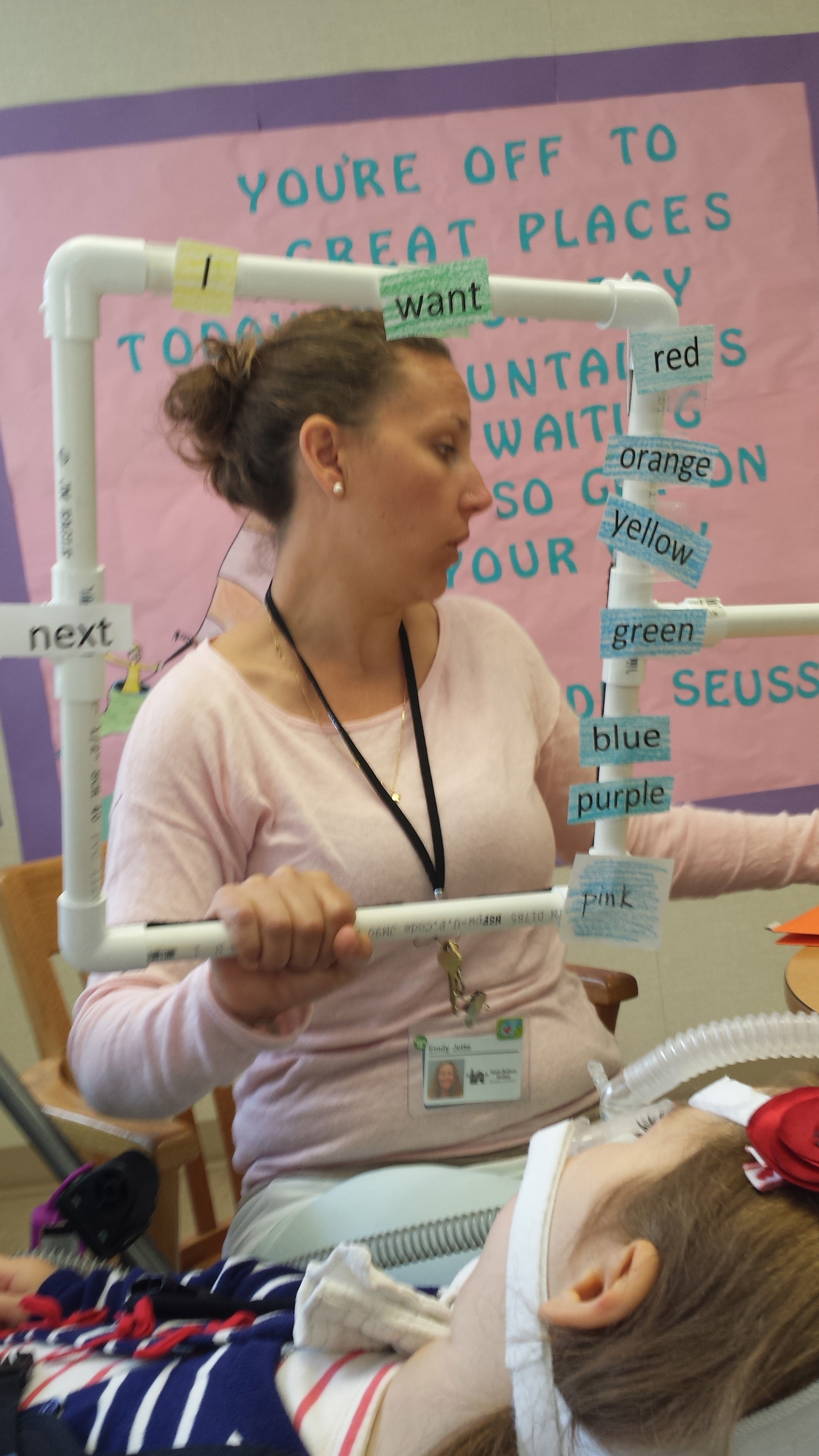
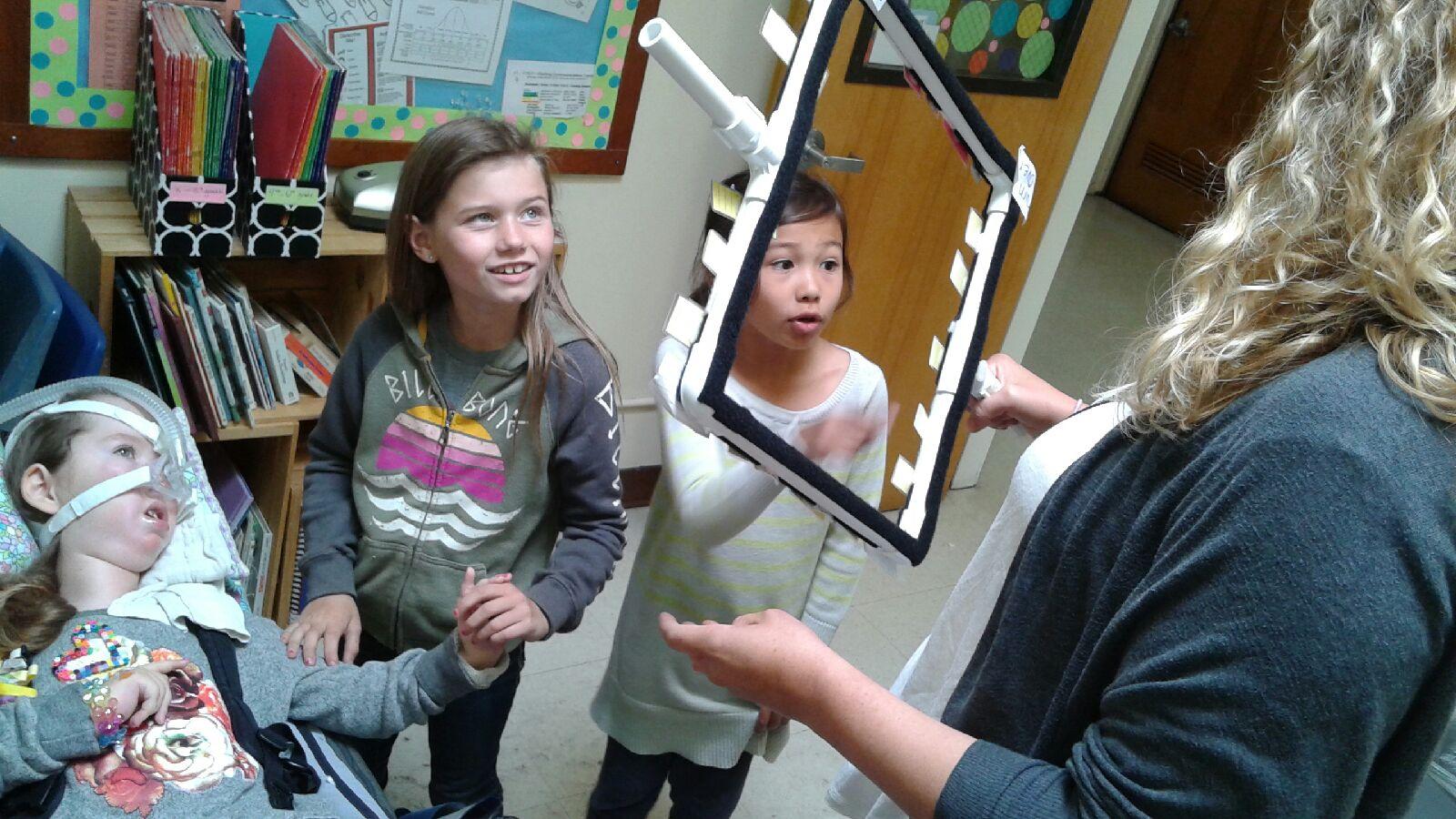
.JPG)
Miss Emily and Miss Weirum are extremely creative and every speech session and pull out session is filled with fun. They even make learning pronouns fun. (Gwendolyn’s favorite sentence she built recently was: “Put Miss Emily IN the trashcan.” And sure enough, Emily popped herself into a (clean) trashcan.) Miss Emily and Miss Weirum cleverly break apart games, assignments, and even standardized testing to be able to make those work within the frame. To alternate on the PVC frame, they apply the same idea and also use a whiteboard and a pointer (Gwendolyn loves using the pointer) and the iPad. Once Gwendolyn became confident using this system, they started taking it out to recess and inviting classmates to her speech sessions, allowing her peers to also learn how to use the PVC frame and better understand how to communicate with Gwendolyn, which, for our social butterfly, has had a massive impact on her overall quality of life.
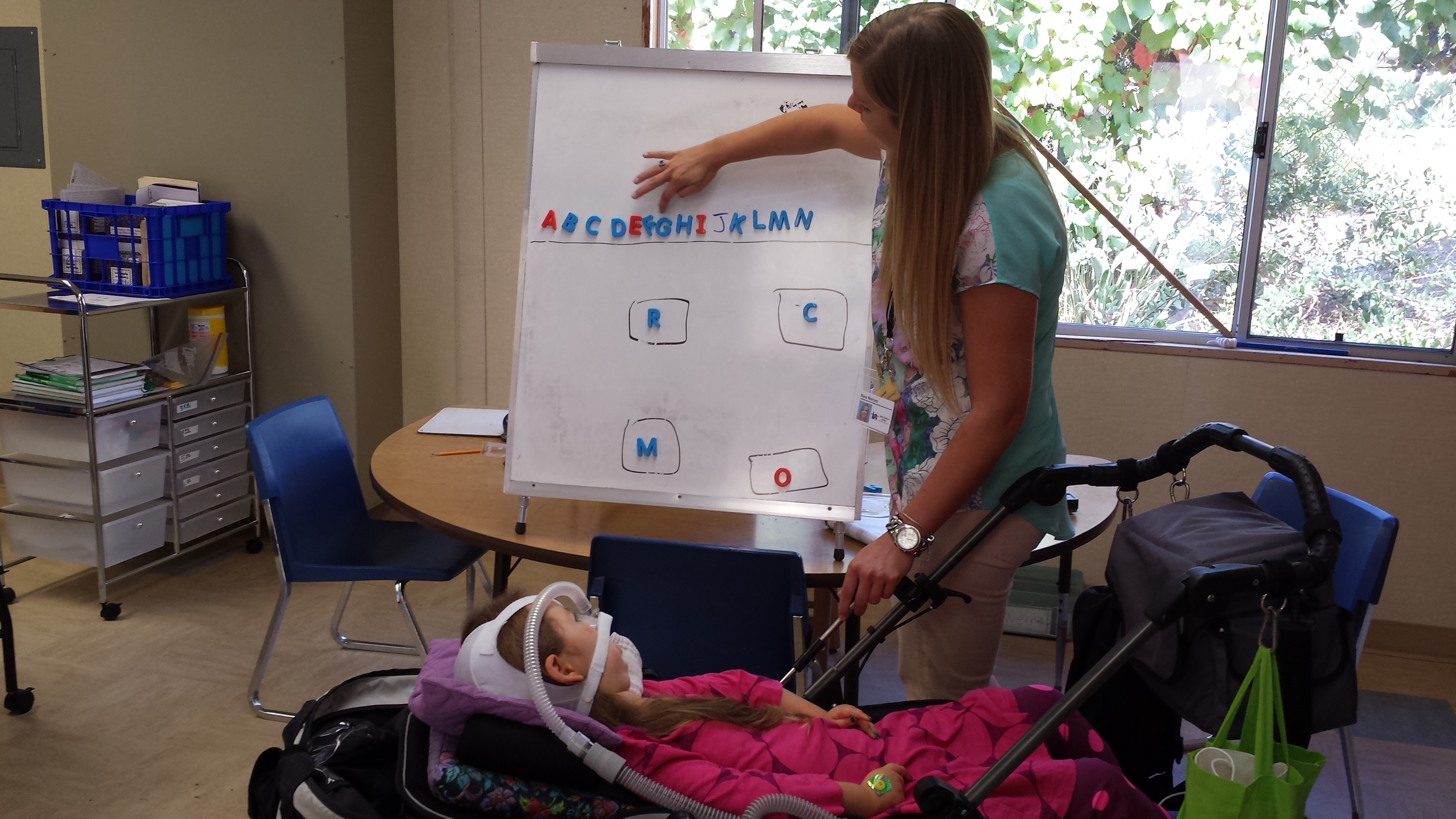

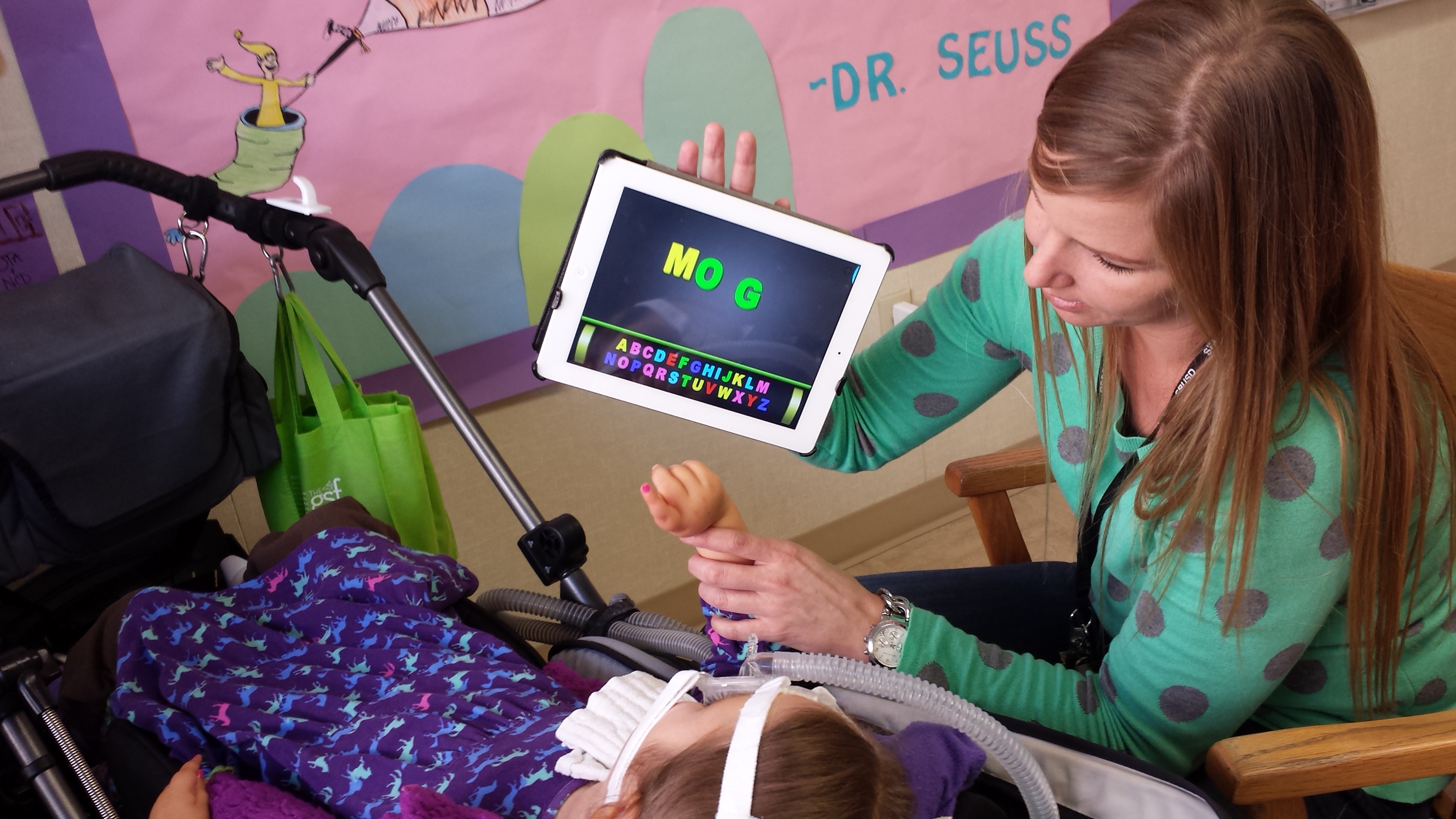
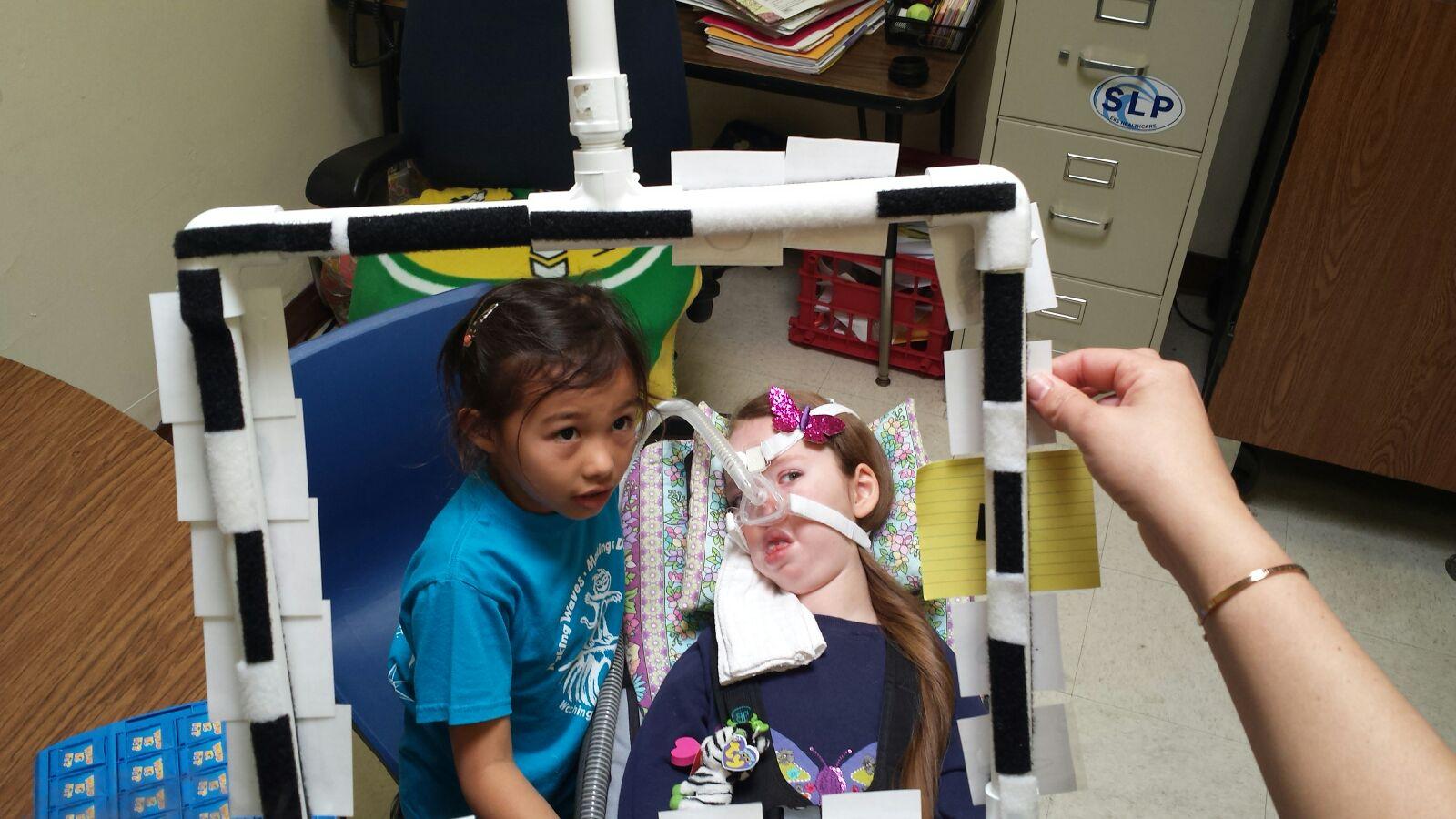
In fact, this frame idea is the core of how her friends learned to communicate with her, and I mean hold full conversations. They took the frame idea and now simply hold up their two hands as options for answers — whichever hand Gwendolyn looks at is her choice. If she wants neither they understand her “Ehhhhhh” or “No” response and then give her two more choices. Her classmates have become so used to reading her queues that all of them interact with her in the classroom and with those special intuitive friends she can have deep, meaningful conversations about assignments, their lives, their emotions, and they actively create future plans and fill us in on what they will be doing together this weekend
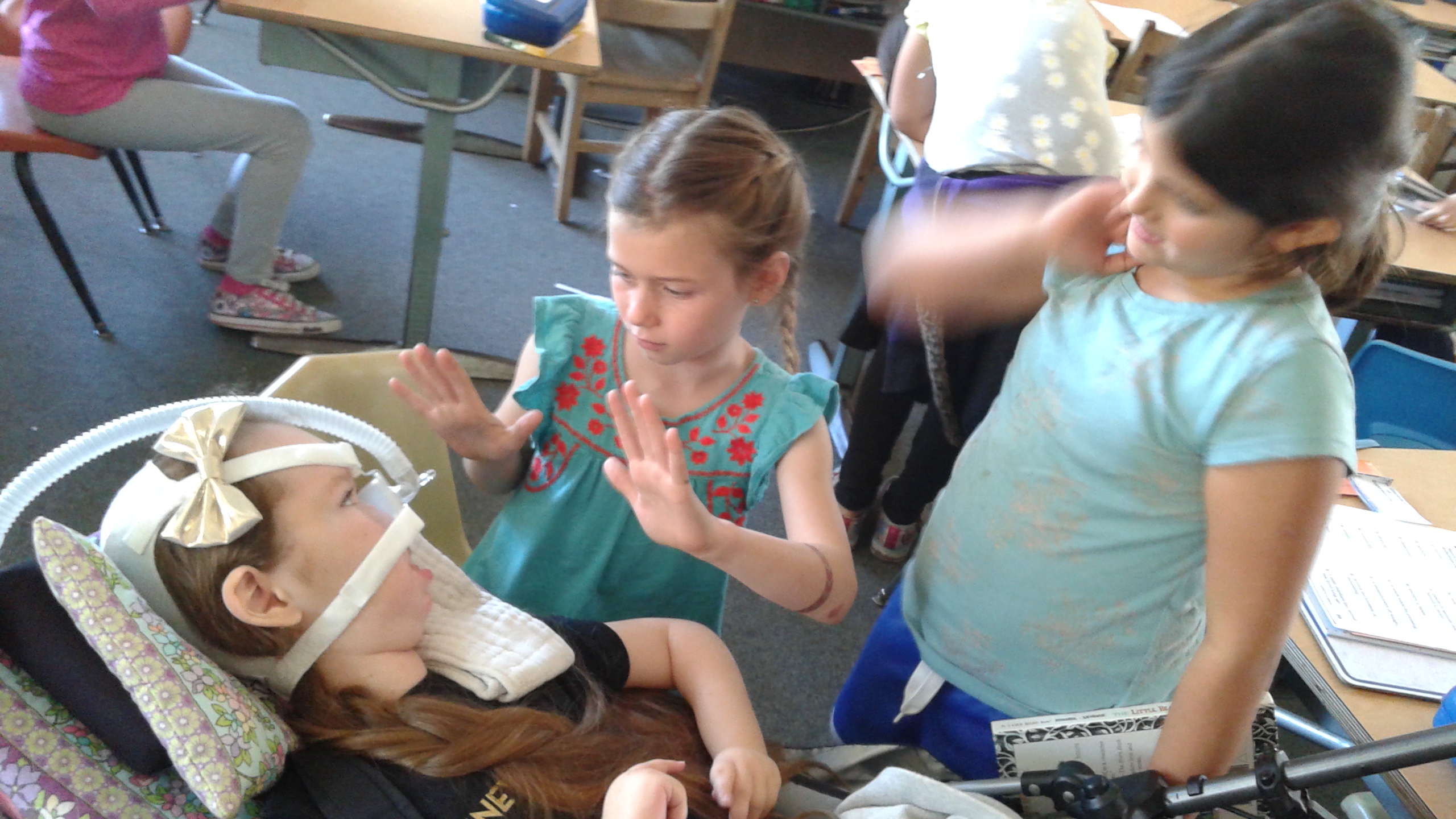
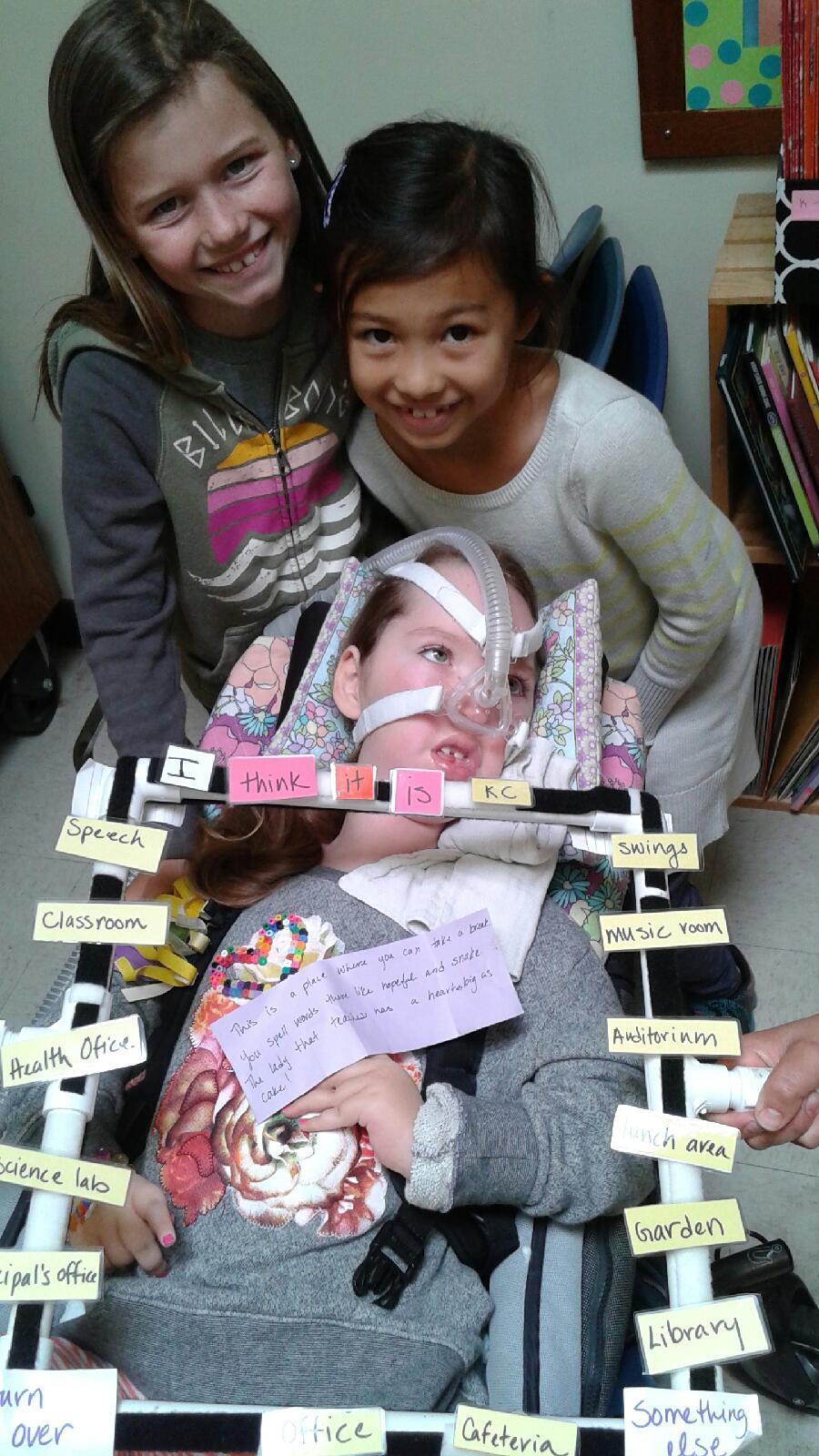
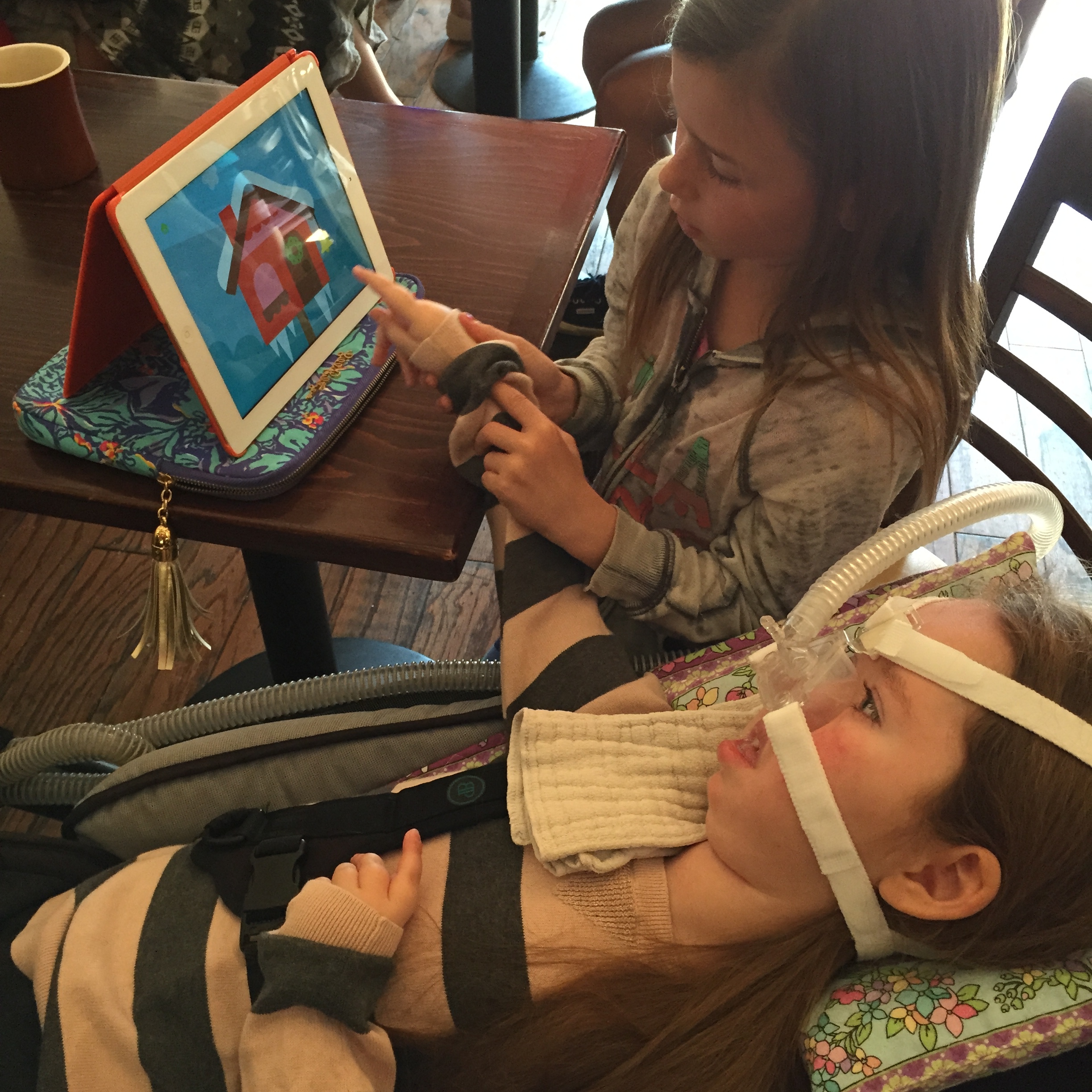
The PVC frame does take some planning but the basis of it has given Gwendolyn a confidence that made all other ways of communicating much more clear. Tina and Abbie are in the classroom with her and often have to work on the fly so they usually use yes and no questions to illicit her responses. Or if it is a lengthier assignment, they will brainstorm a list of ideas with her and then narrow down her selection that way. Gwendolyn has written beautiful poems this way, persuasive letters, and research reports. Tina usually does the physical writing (though Gwendolyn is always given the choice if she wants to help hold the pencil and write together), but the thoughts are all Gwendolyn.
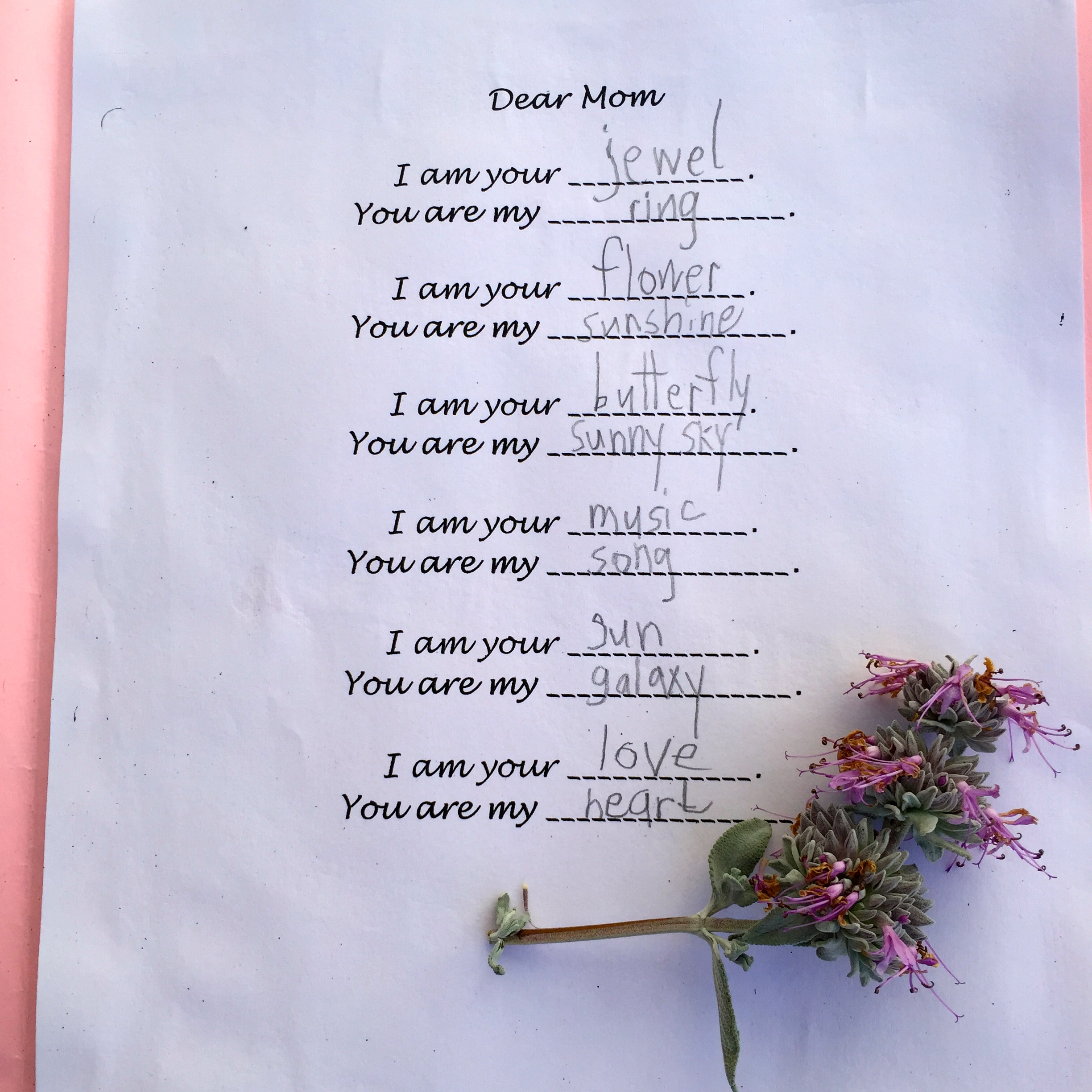
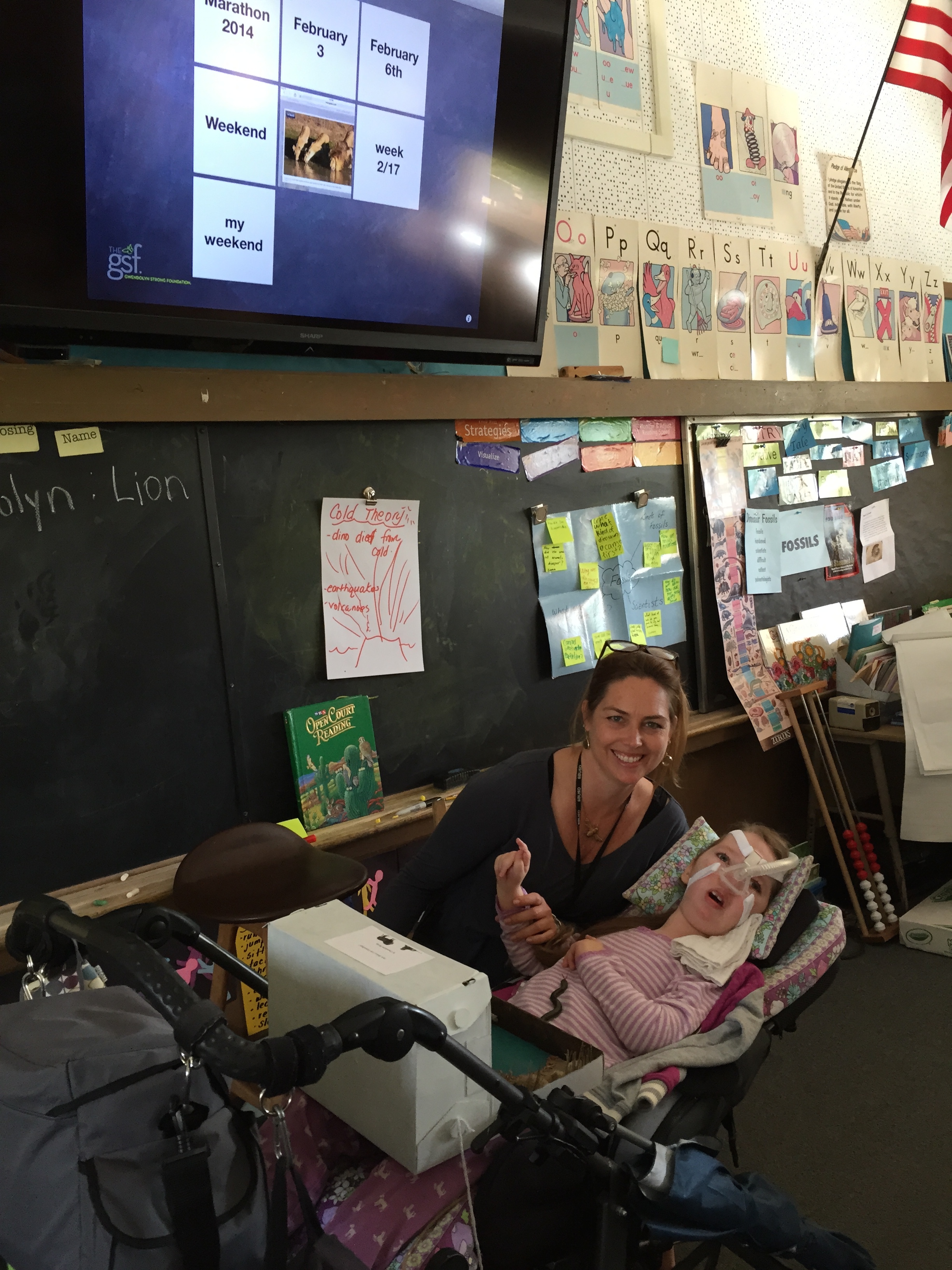
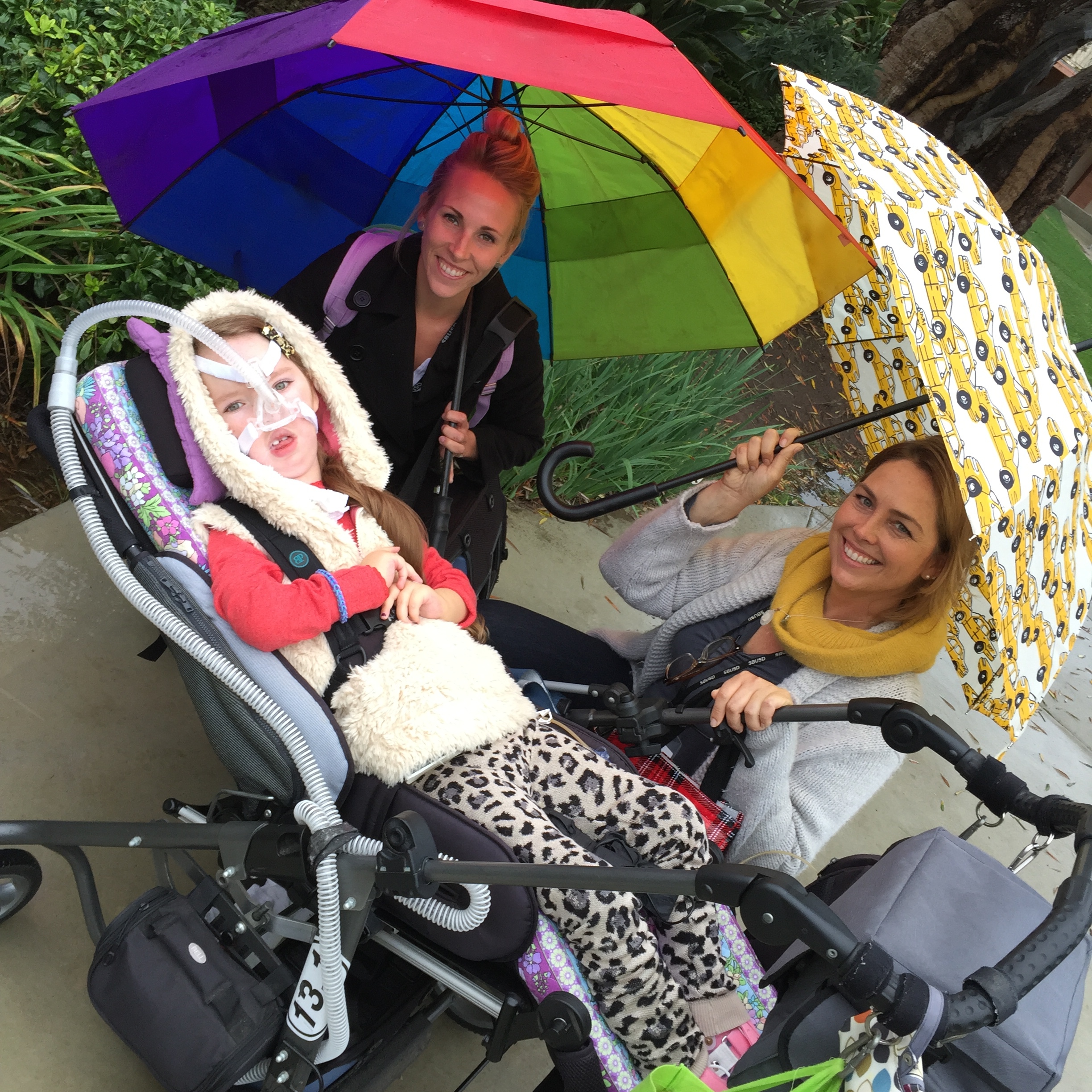

Some of the other strategies they have used over the years are:
- For reading comprehension testing Miss Weirum covers up the pictures of a book, points to each word that Gwendolyn then reads on her own, and at the end of the book she reads questions on her own and selects from four options. Miss Weirum never reads anything out loud so Gwendolyn was able to really show her reading level and comprehension level very well.
- Emily purchased an extra sensitive “Step by Step” touch to talk device and together they can record three things to say. One day they went around the school scaring people. With one tap Gwendolyn said, “Boo!” Two taps: “Ha, ha, I got you!” They also used this at the Special Olympics to cheer for others: “Way to Go!”, “You rock!”, “Go Wildcats!” Gwendolyn fully understands how many times she needs to tap to get to what she wants to say.
- Oral presentations are part of the curriculum. Using Say Hi! AAC, which can be prerecorded, Gwendolyn eagerly goes to the front of the class and with help presses a button on the iPad screen to say what she wants. She writes and plans everything ahead of time, including selecting images. Usually the entire team works on these types of assignments with extra time on them during her pull out sessions with Miss Weirum. The school also has a way for her iPad to connect with the classroom overhead so the photos she selects and what she is saying also pops up on the screen behind her and the voice recording comes through the project speaker. The other children are always so supportive and complimentary of her speeches. She has also used Say Hi! AAC to tell jokes and recite poems.
- Writing directly on the iPad. Now that Gwendolyn is literate she can use a keyboard on the iPad screen to type what she wants to say. She does not have independent arm movement so she needs support holding her arm. To speed up the process she is first asked if the letter she wants is in the first row or the second row or the third row. Then from there her arm is moved across the row of her choice allowing her finger to hover over each letter. She taps when she is ready. We have done this in “notes” but it is much easier with a larger letter screen found in various education apps.
- And new avenues are always being explored.
What has come out of all of these strategies is so incredible. Gwendolyn is silly. She is so observant. She is sensitive and insightful. She loves to tell jokes. And she loves to show how darn intelligent she is. One of her favorite things is to read a book and then take an “accelerated reader” quiz about it on the computer. She is quite hard on herself and often melts into tears if she gets less than a 98%. She is very creative and loves writing assignments that include adding her own imaginative flare. She has a way with words and masters spelling lists easily. (She spelled jalapeno on the first try last week!) And she is very opinionated. It is so clear that all of the support she receives is having a resounding positive impact on her life. And this would not be possible without these very specific amazing people in her life who truly enable her access to education.
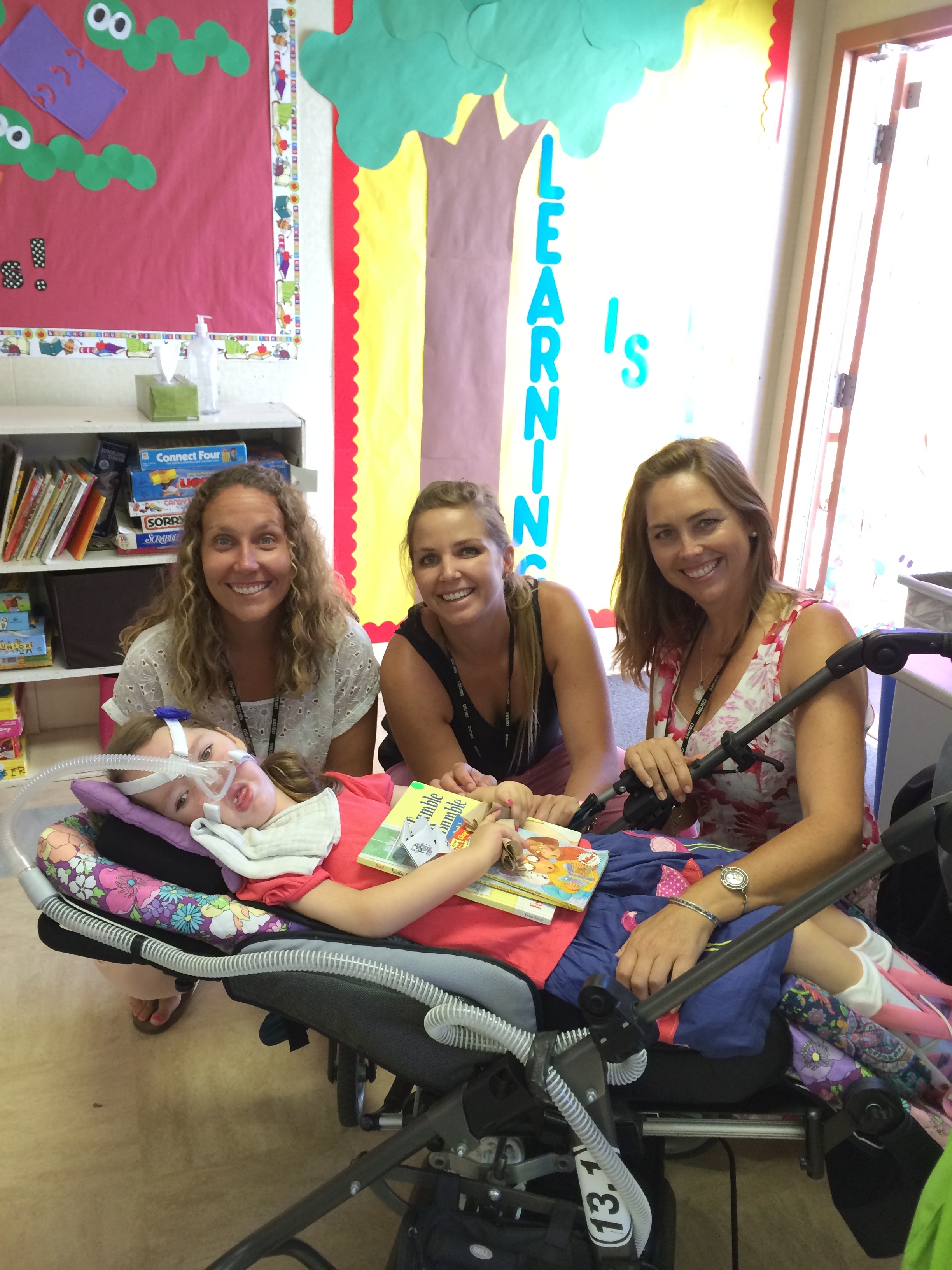
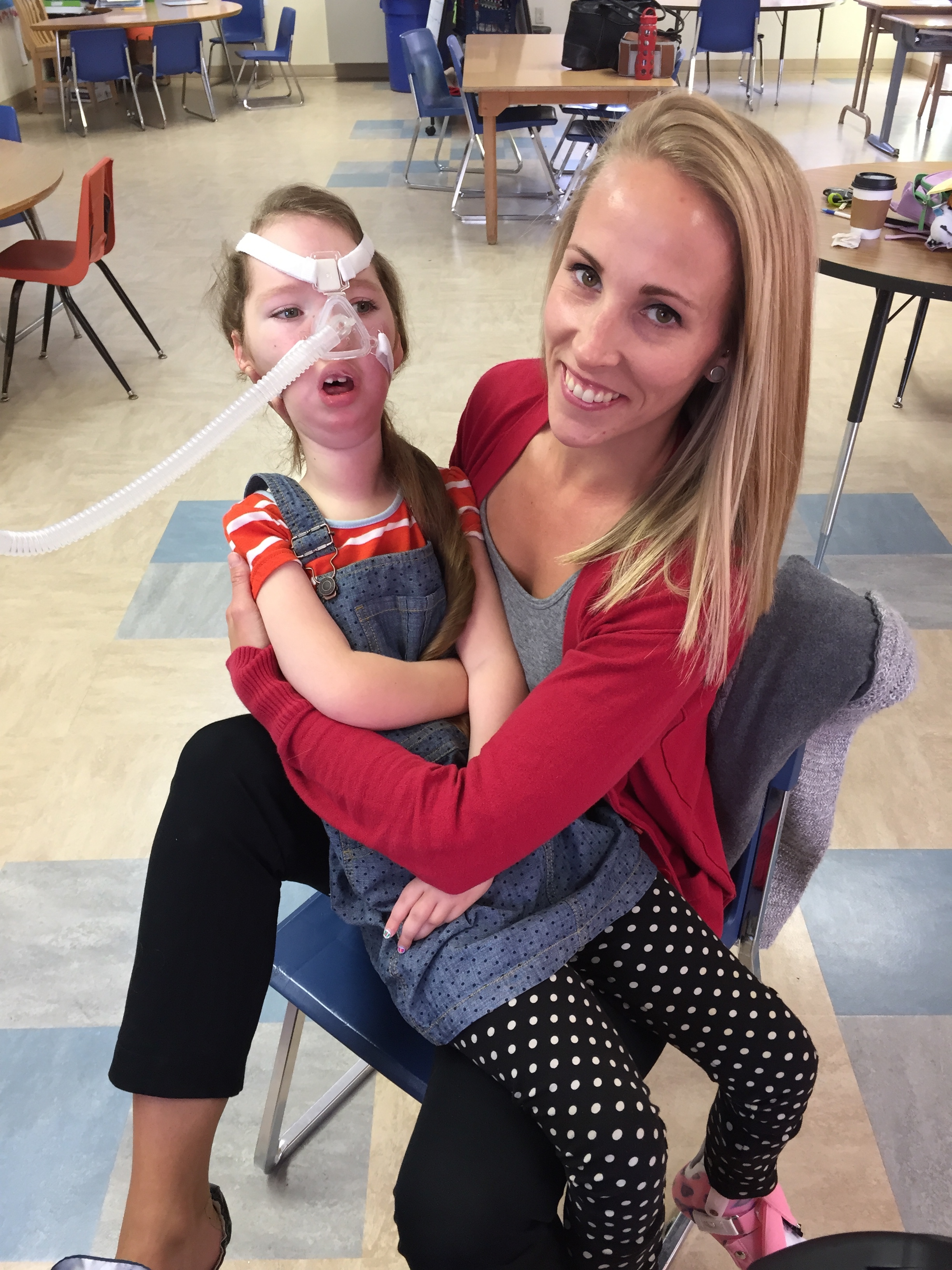
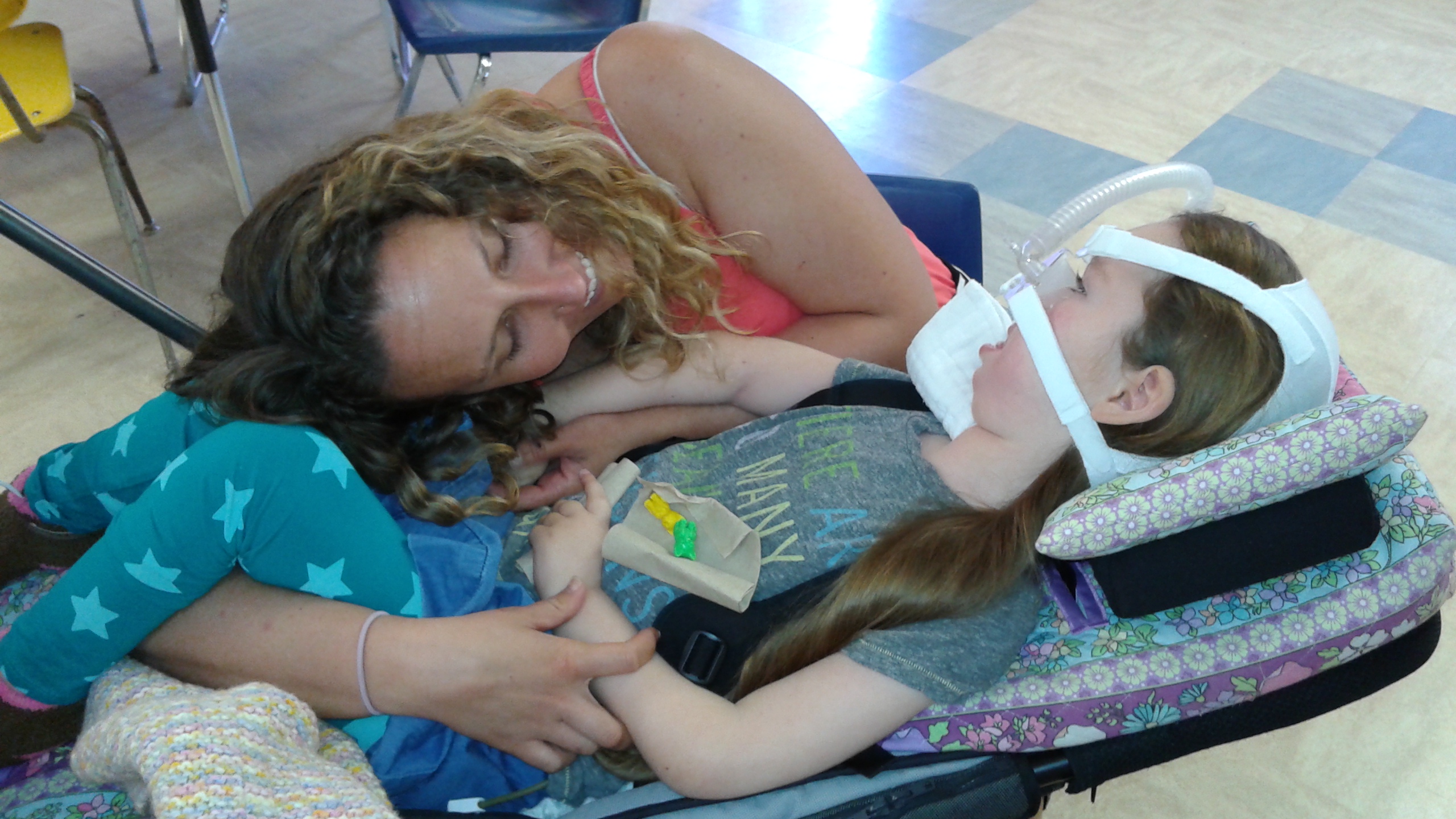
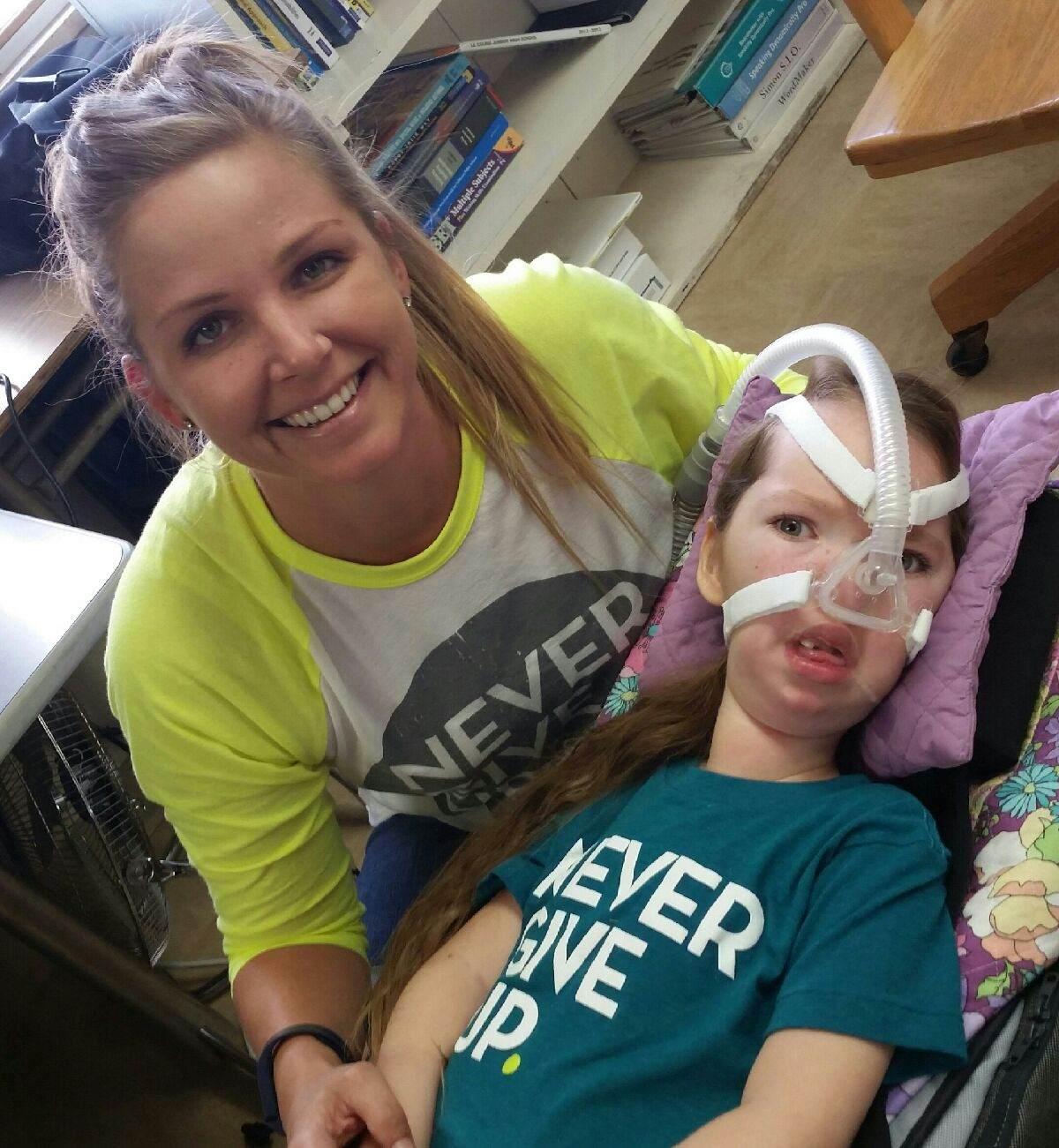
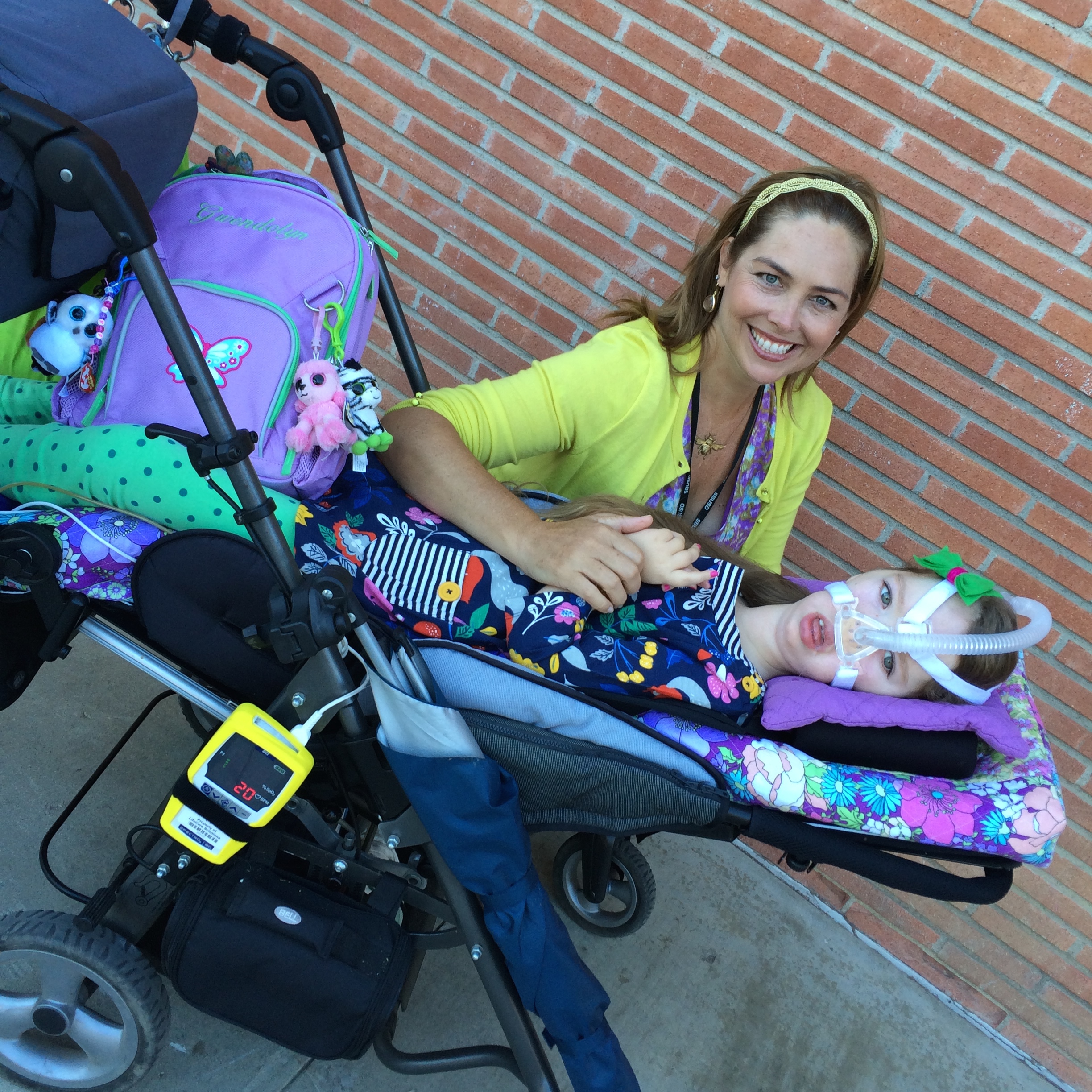
Every loving parent longs to see their child flourish and be inspired to excel. Gwendolyn’s team so clearly inspires her to soar. She has not only risen to the occasion, she is sailing far beyond expectation, taking everyone along on this incredible joy-filled ride. And we are beyond grateful.
For us, the point of attending school is not to simply physically be in a school building. The risk of attending is only worth it because Gwendolyn is fully immersed in her school community. Every single day she is excited to get to school. She is immediately greeted by her peers and busily chats with them before class. She is challenged academically and pushed to give her very best self. And, like all students, she must put in effort even when the topic isn’t her favorite. She runs and plays games with her friends. She gets to be just one of the kids and tap into the childhood wonder that only happens when children are among other children. She has important and dynamic relationships with adults other than just her two parents. She has grown educationally but also socially and emotionally because she is alongside her peers. And, she thrives because of all of this.
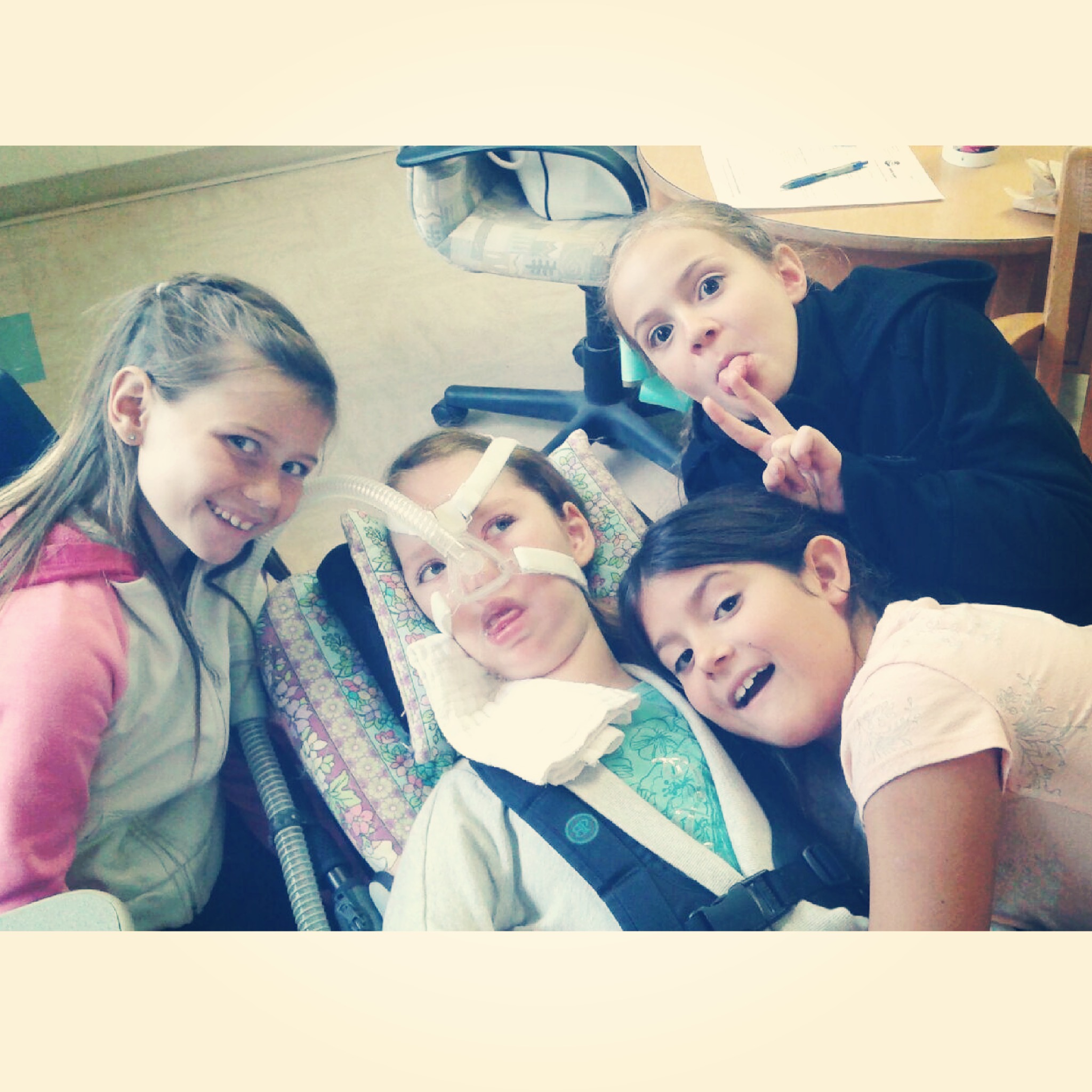
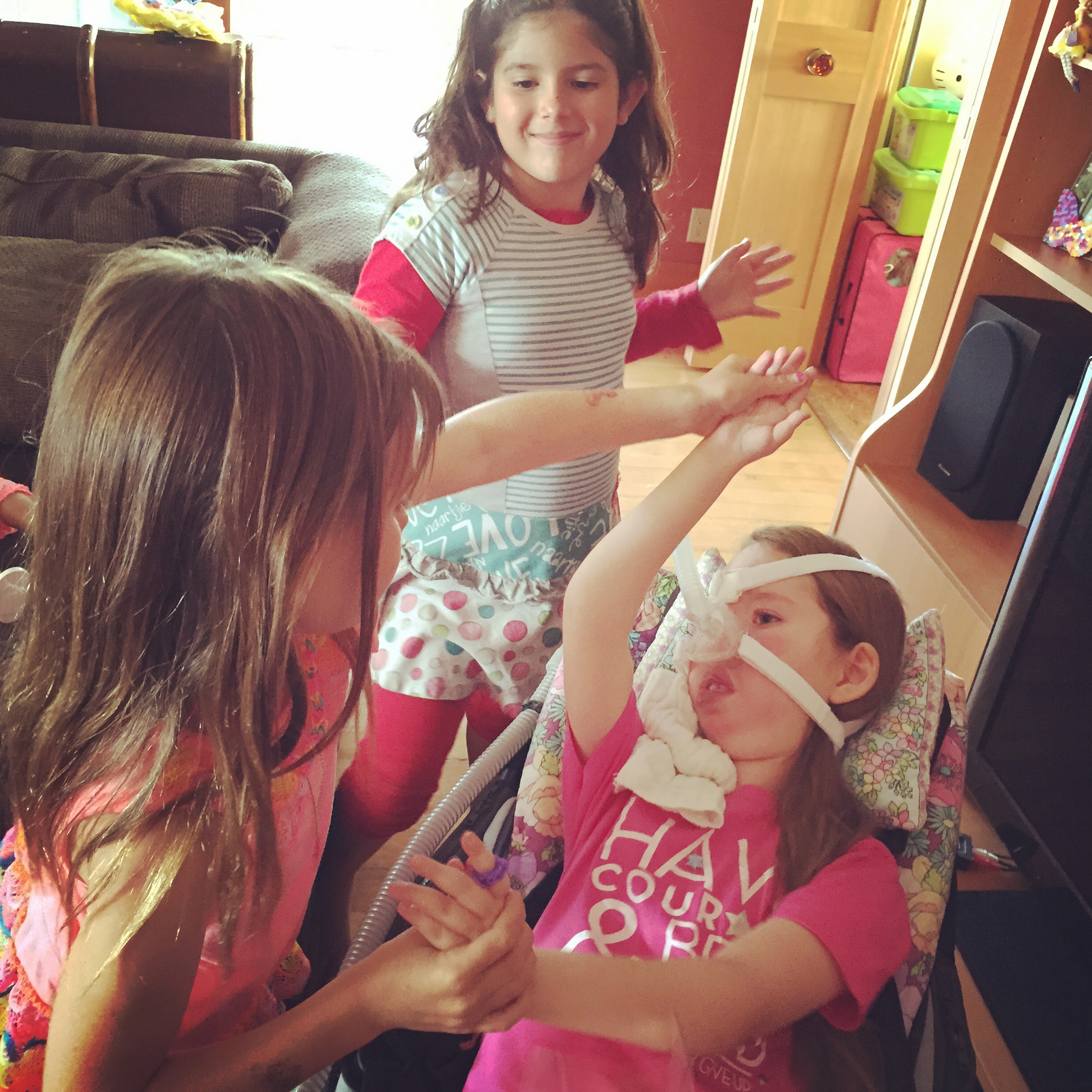
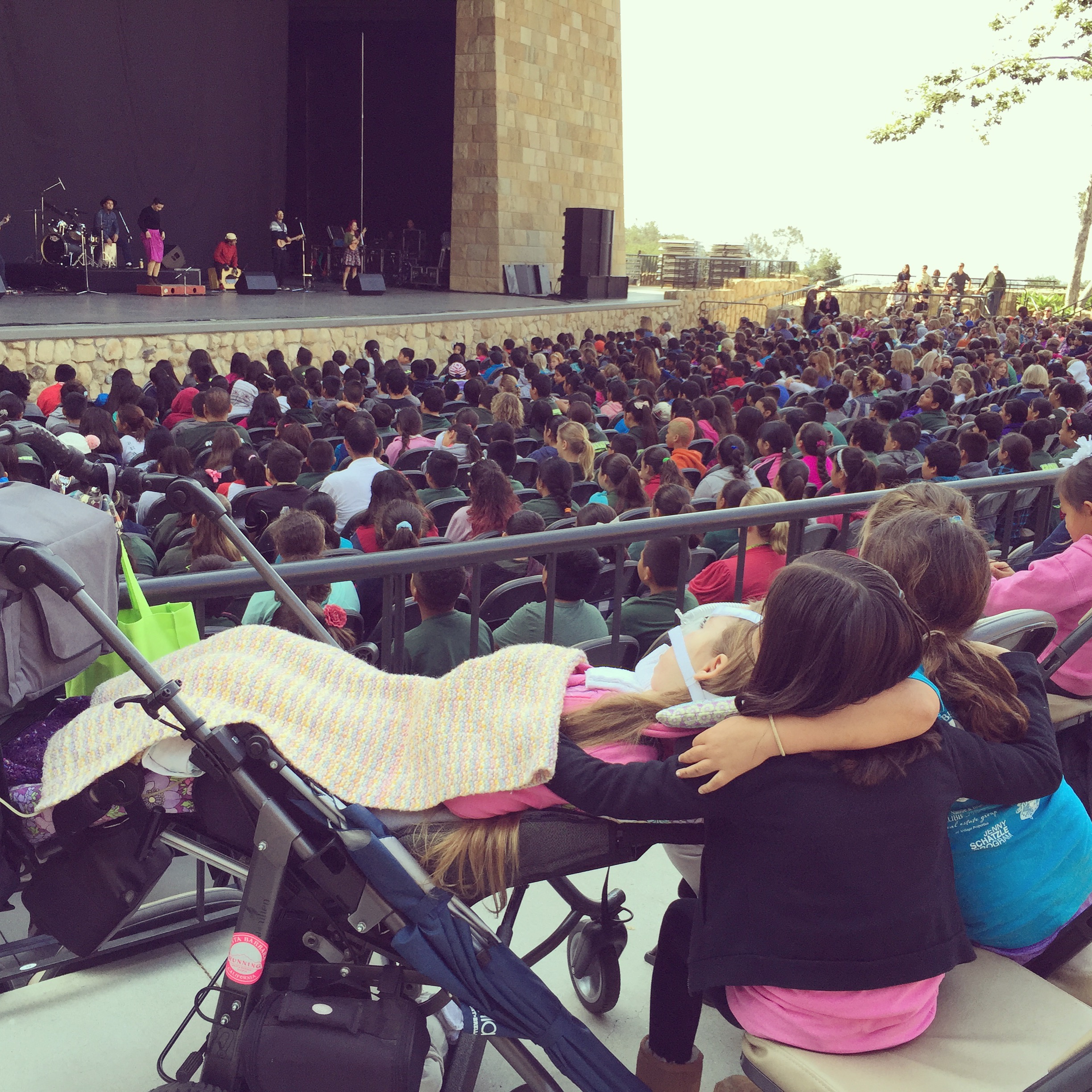
.JPG)
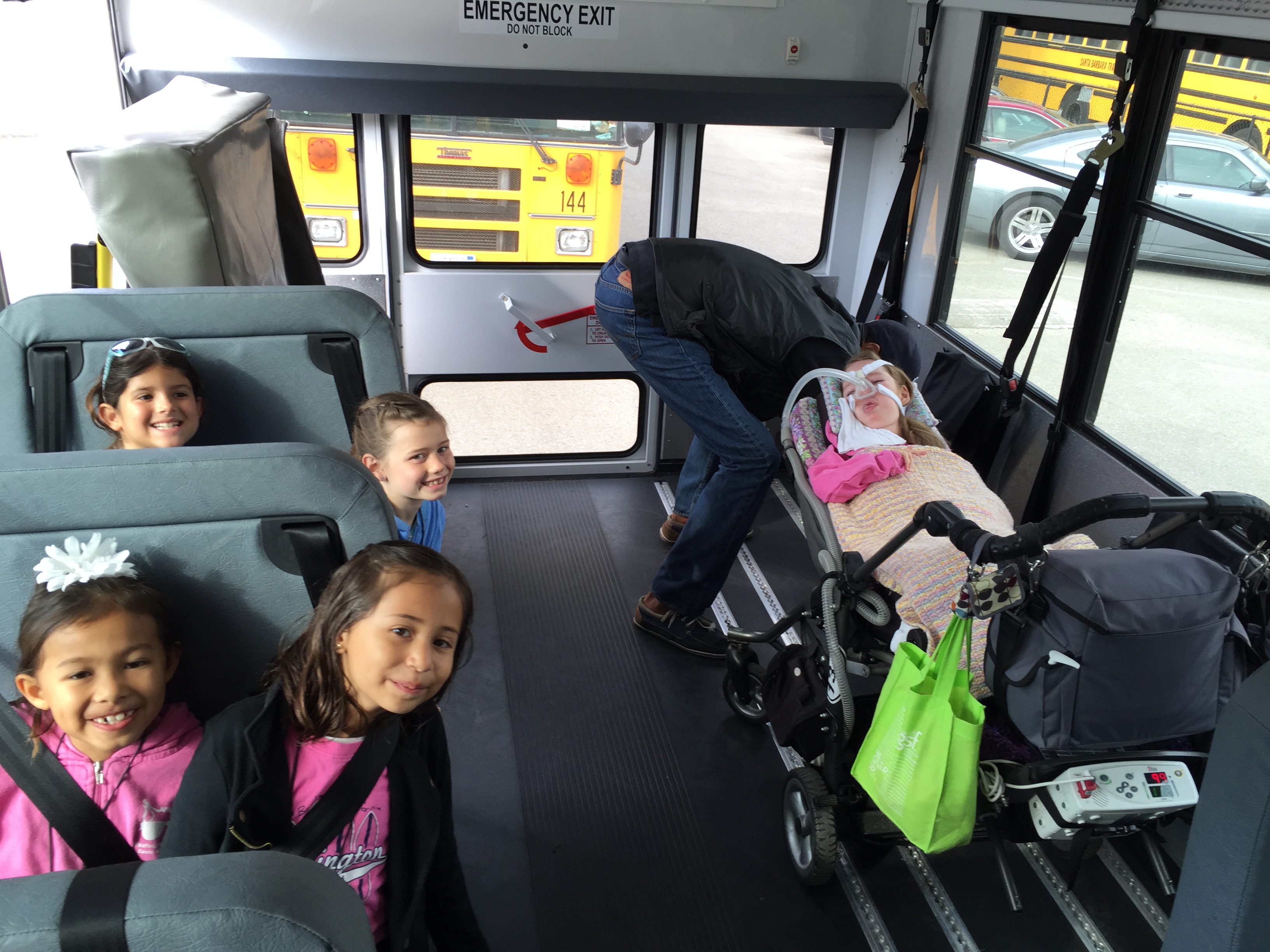
.JPG)
We know we are fortunate in so many ways. We have a district that embraces inclusion and supports Gwendolyn being in the mainstream setting. They were very flexible as we first navigated what Gwendolyn would need to make public education truly possible for her and were willing to create a fluid structure if needed. We also have a district that continually meets all of her unique needs, which, given that SMA is degenerative, continually change.
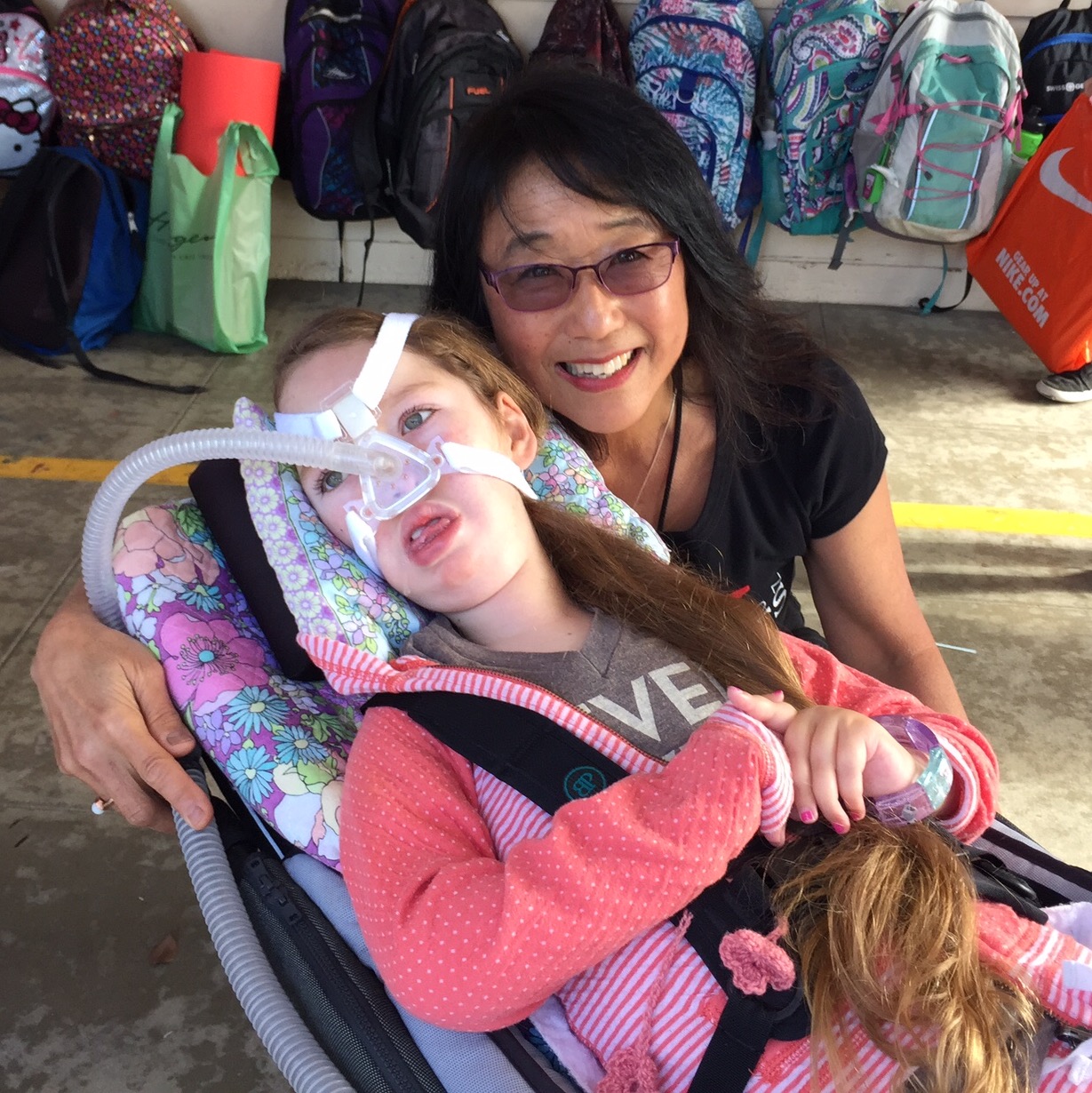
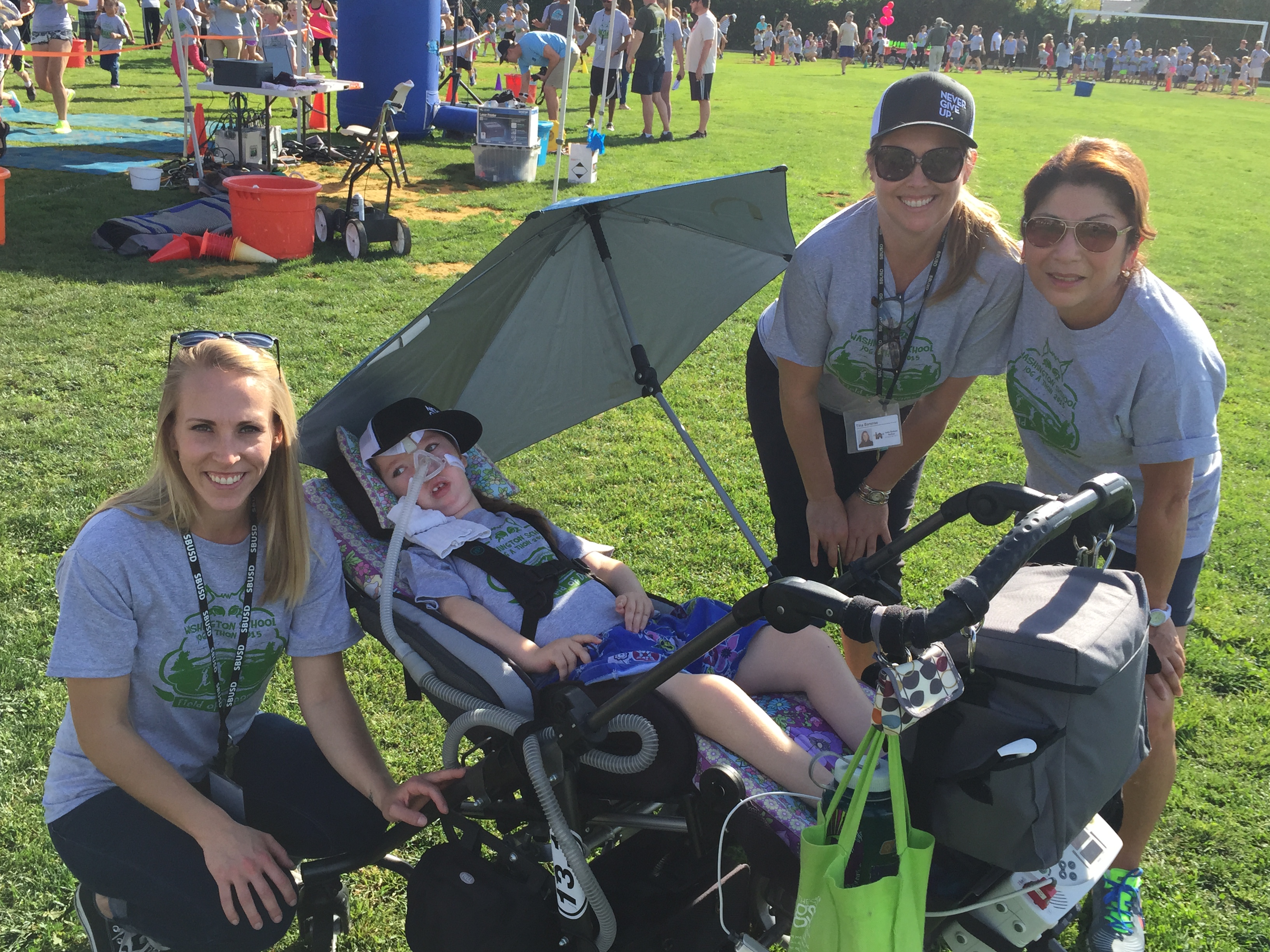
We have a wonderful open-minded school environment in which most of the school parents are grateful that their children will grow more deeply through the exposure to a child with disabilities and unique differences. We have actually had multiple parents thank us for giving their child an opportunity to experience diversity. And many go out of their way to encourage a friendship with Gwendolyn. Our school also has a friendly and positive office staff who go above and beyond for Gwendolyn. She loves going into the office for stickers and attention each day. And the school is filled with teachers who want all children to succeed. While the team really takes on most of the accommodations, the mainstream classroom teacher absolutely must embrace inclusion. At their core they have to truly believe Gwendolyn belongs in their classroom with the typical children or Gwendolyn will sense she is being treated differently and will shut that teacher out. We have been so thrilled with the loving and encouraging teacher’s Gwendolyn has had these last few years.
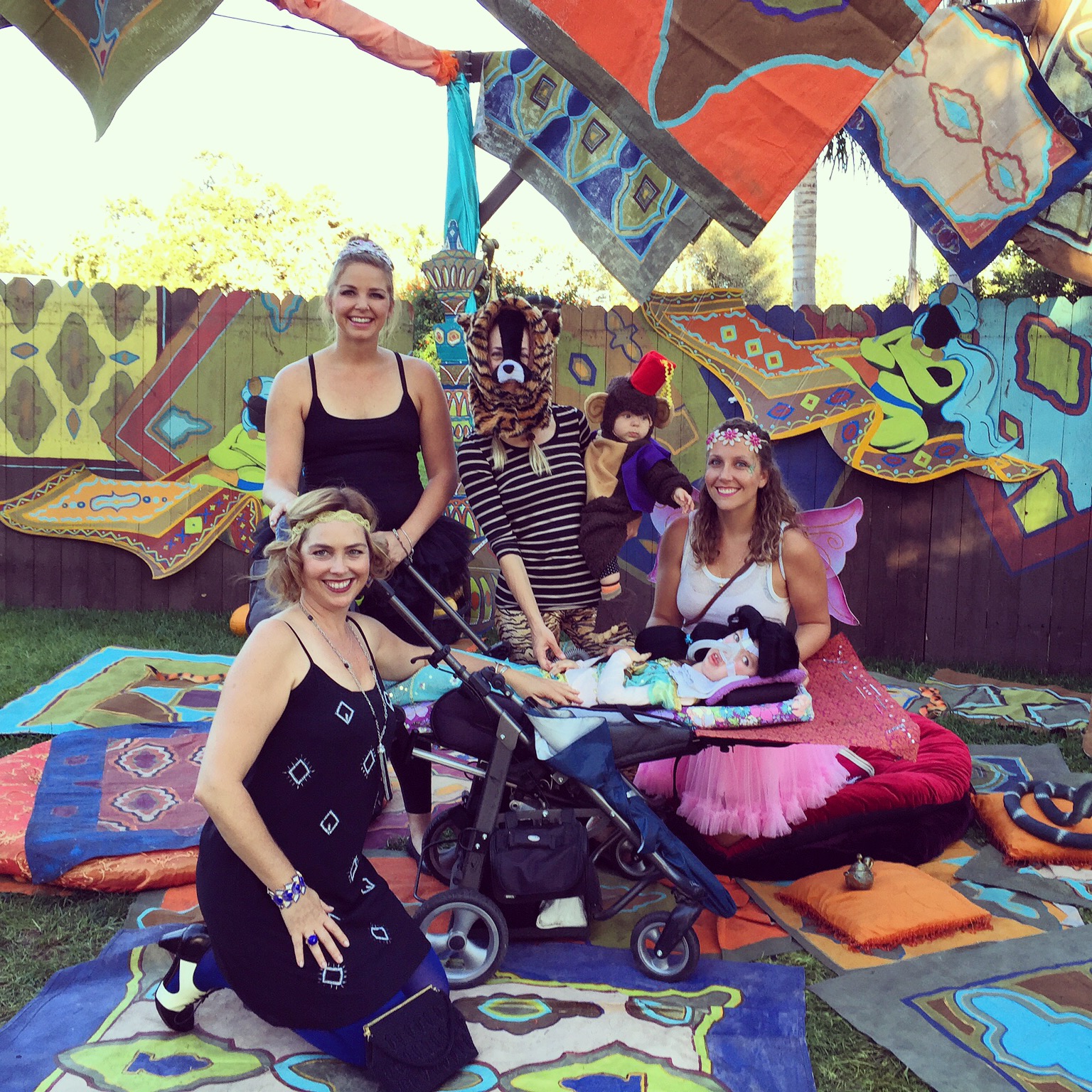
And, we have a team that is truly creating magic. Without them, their love, their creativity, their time and energy, their compassion, their dedication… Gwendolyn’s school experience would be vastly different. They truly “get her” and through their sensitive understanding of who she is, they have enabled others to understand her, too.
Yes, we are fortunate. And because of the immediate embrace, we now expect no less. This is special and wonderful, but shouldn’t all children, regardless of ability, have the same special and wonderful experience in their school? We often read about other SMA families, many whose children are far less disabled and have the ability to speak, shunned by their districts, excluded by their schools, made to watch activities with their peers from the sidelines. It breaks our hearts. At times we push our district and the school and other parents to always remember inclusion, be more accomodating – for all children. But, we think, we are all better people for it.
Here is to an amazing second grade experience! We are so excited for third grade and all the fun Gwendolyn will get to have!!!
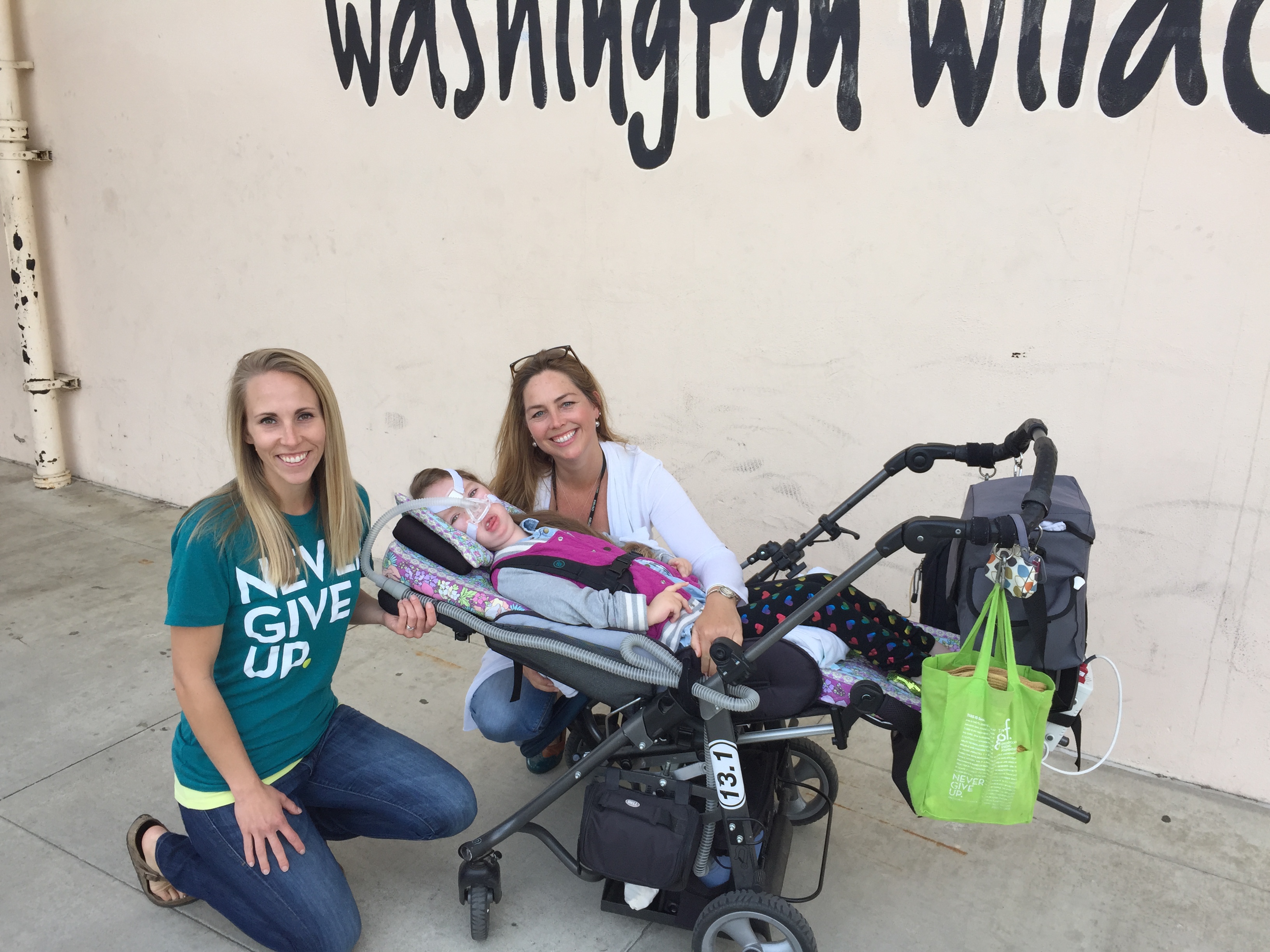
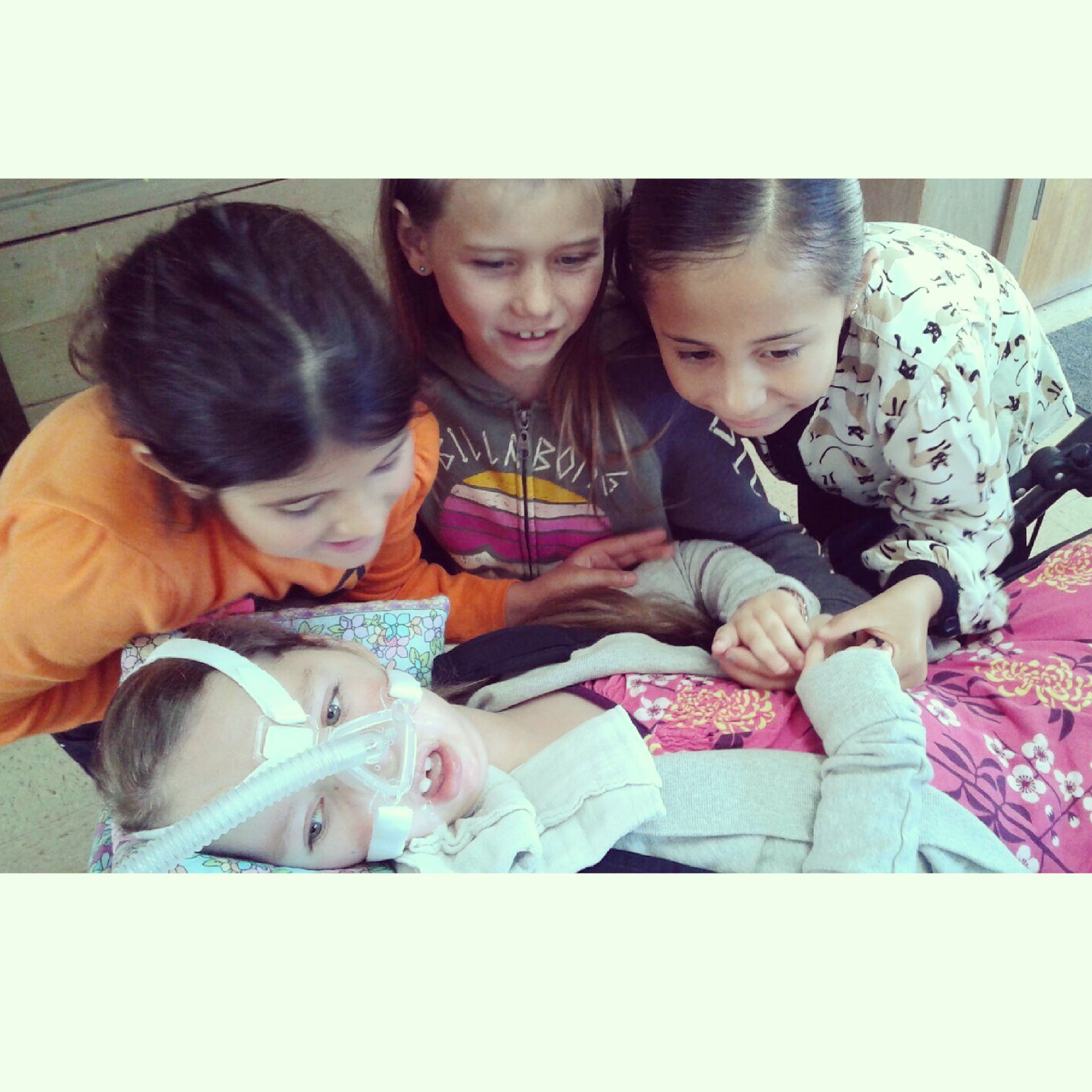
.jpg)
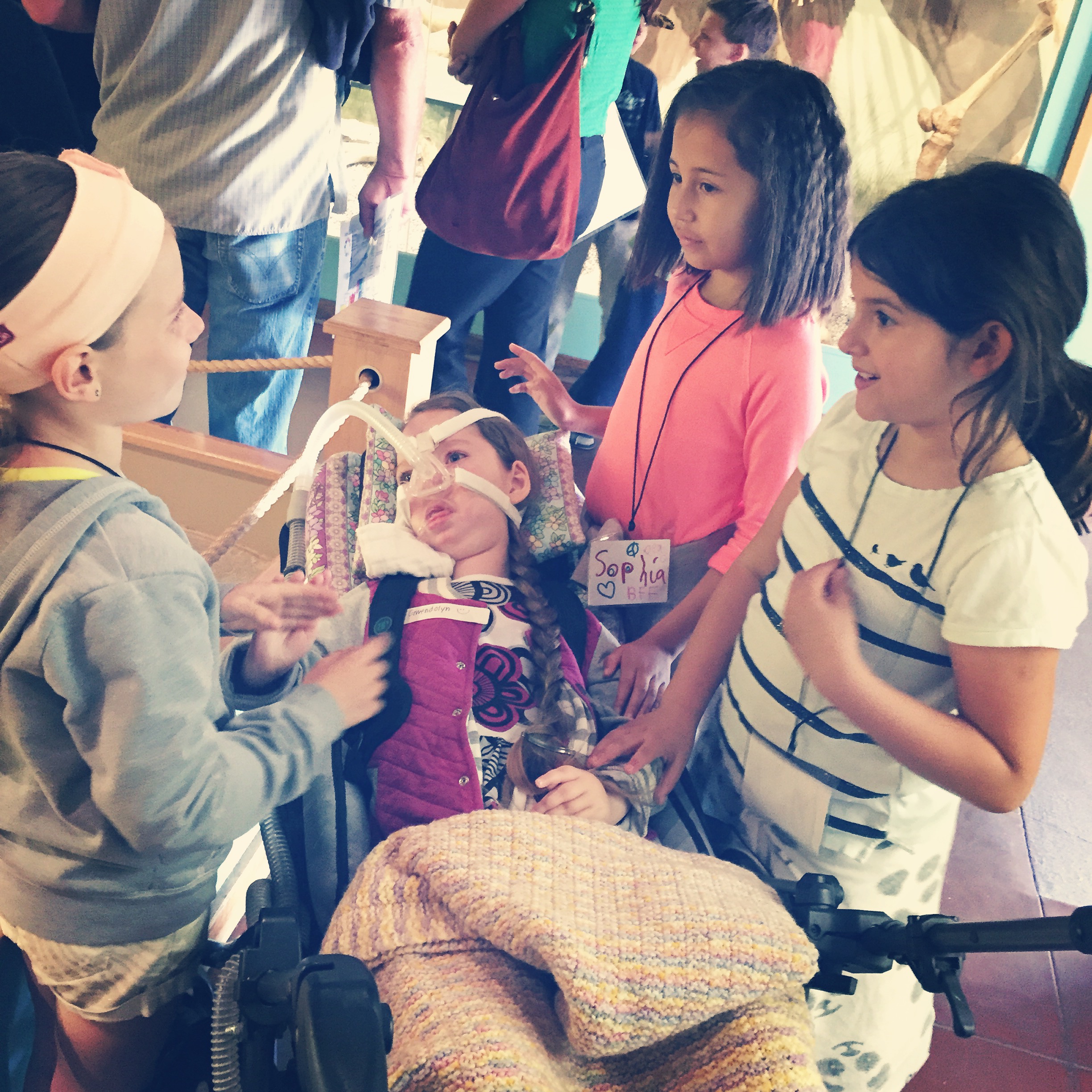
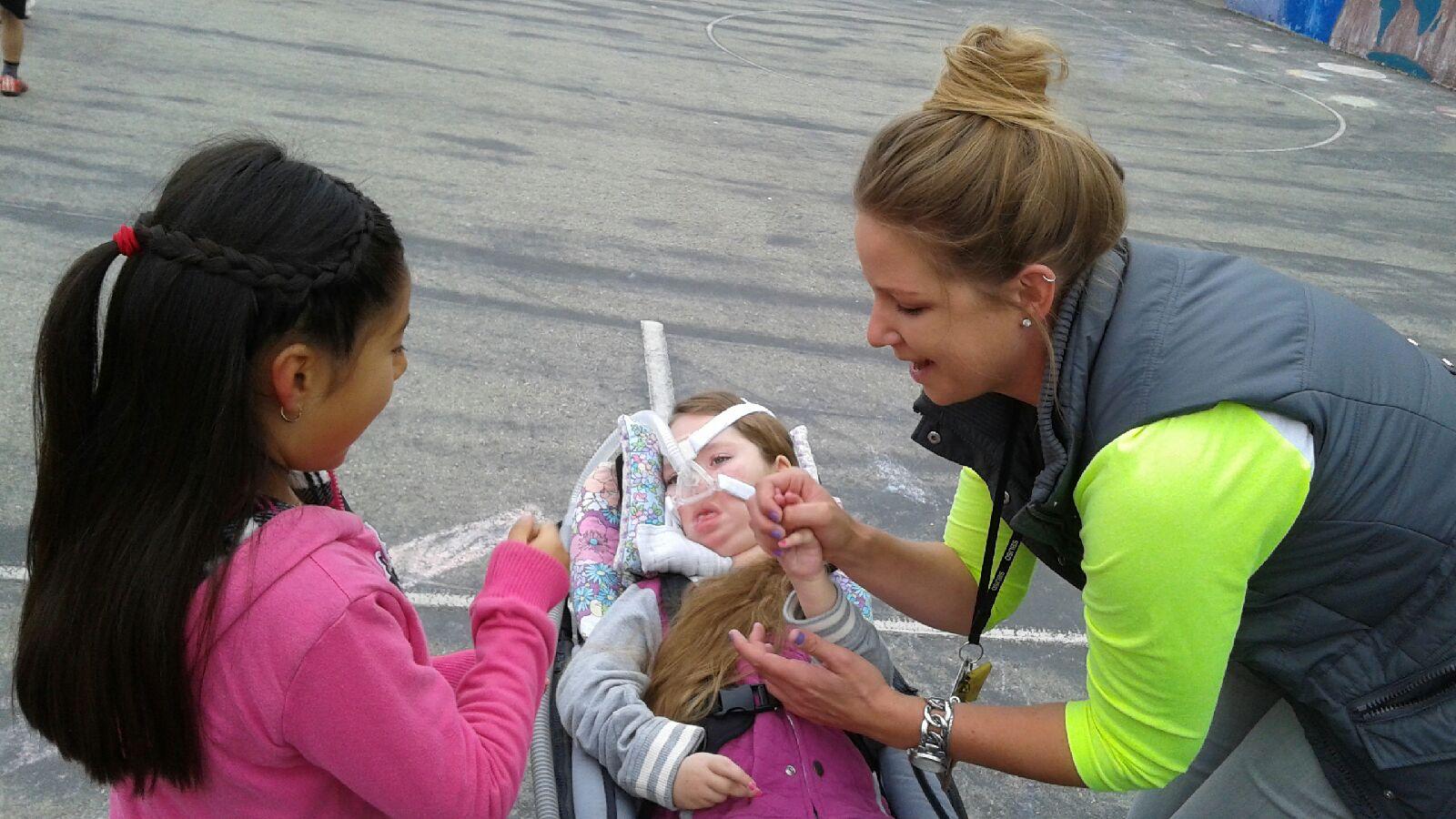
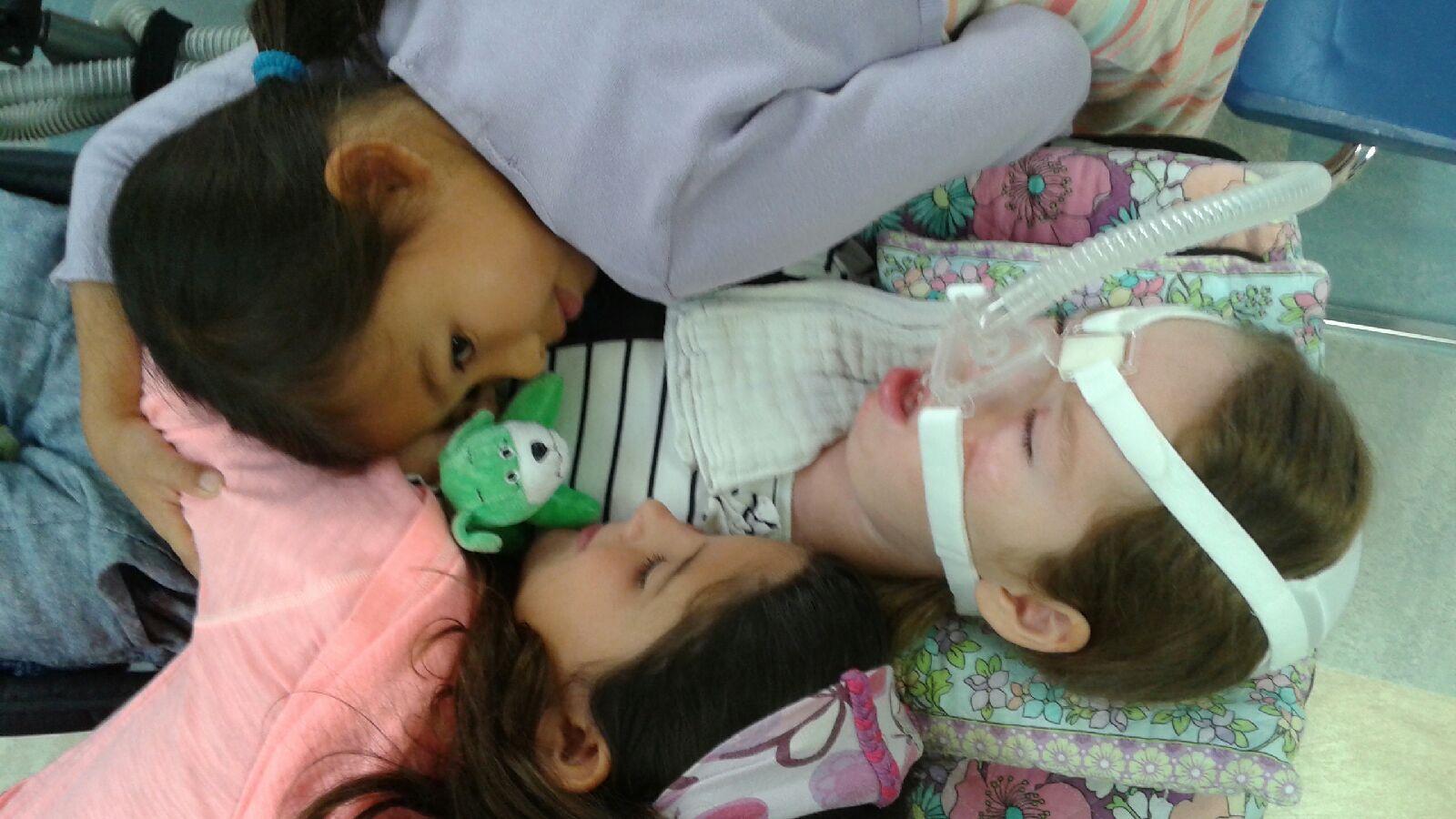
Other school posts:
Gwendolyn’s First School Dance: Daddy Daughter Valentine Dance
Gwendolyn’s Kindergarten Experience
Dear Special Needs Parent: Acknowledge Your Child’s Differences

